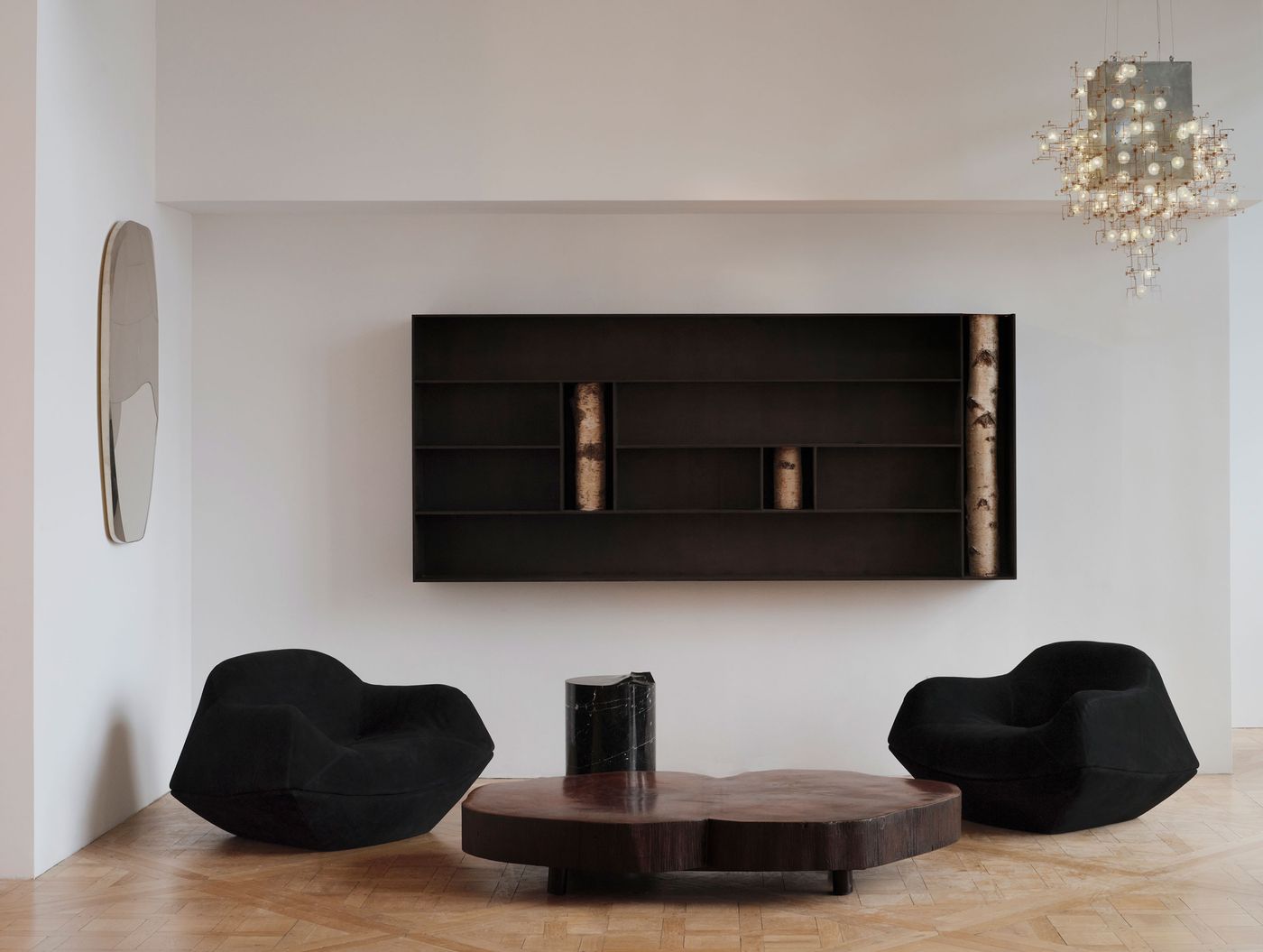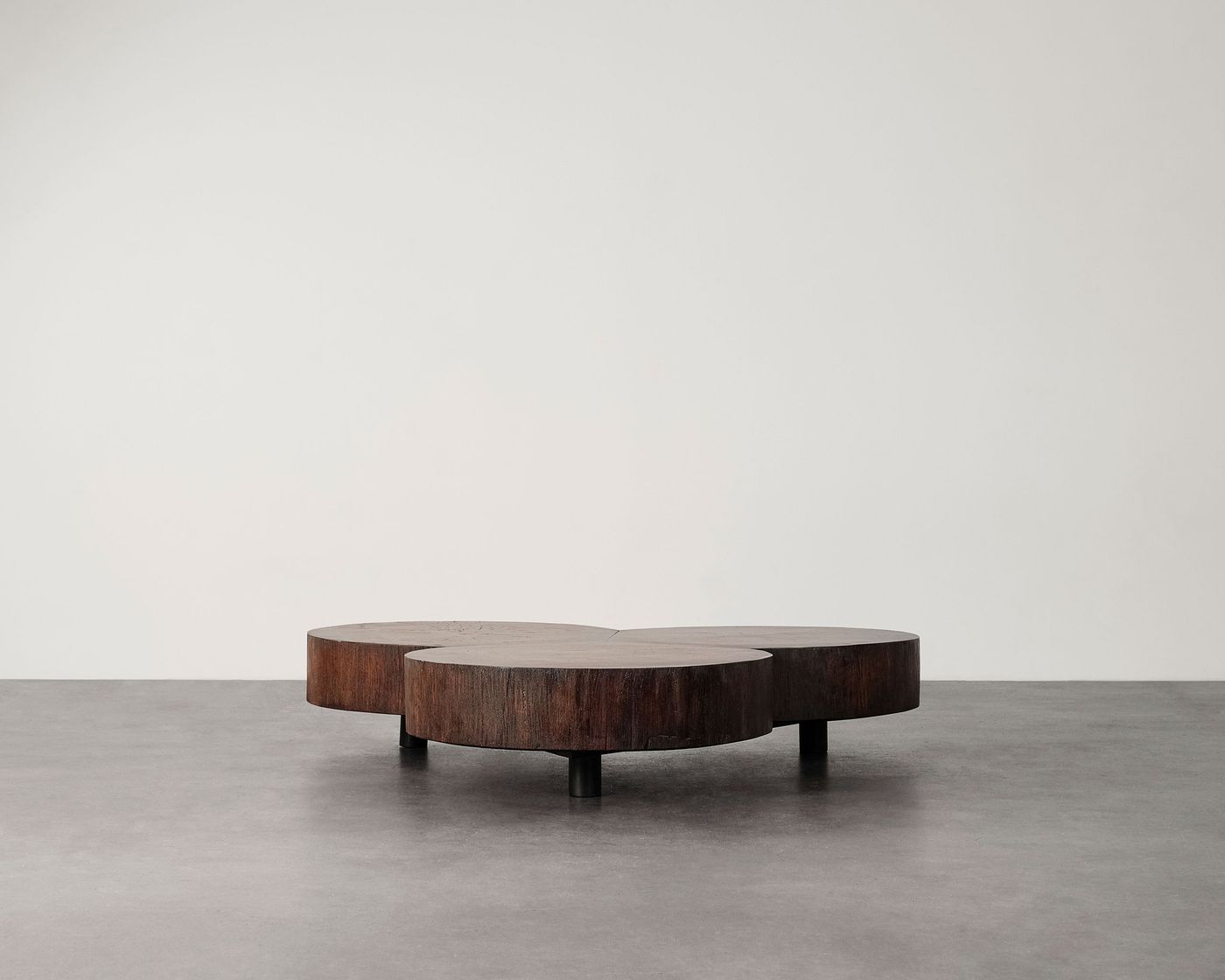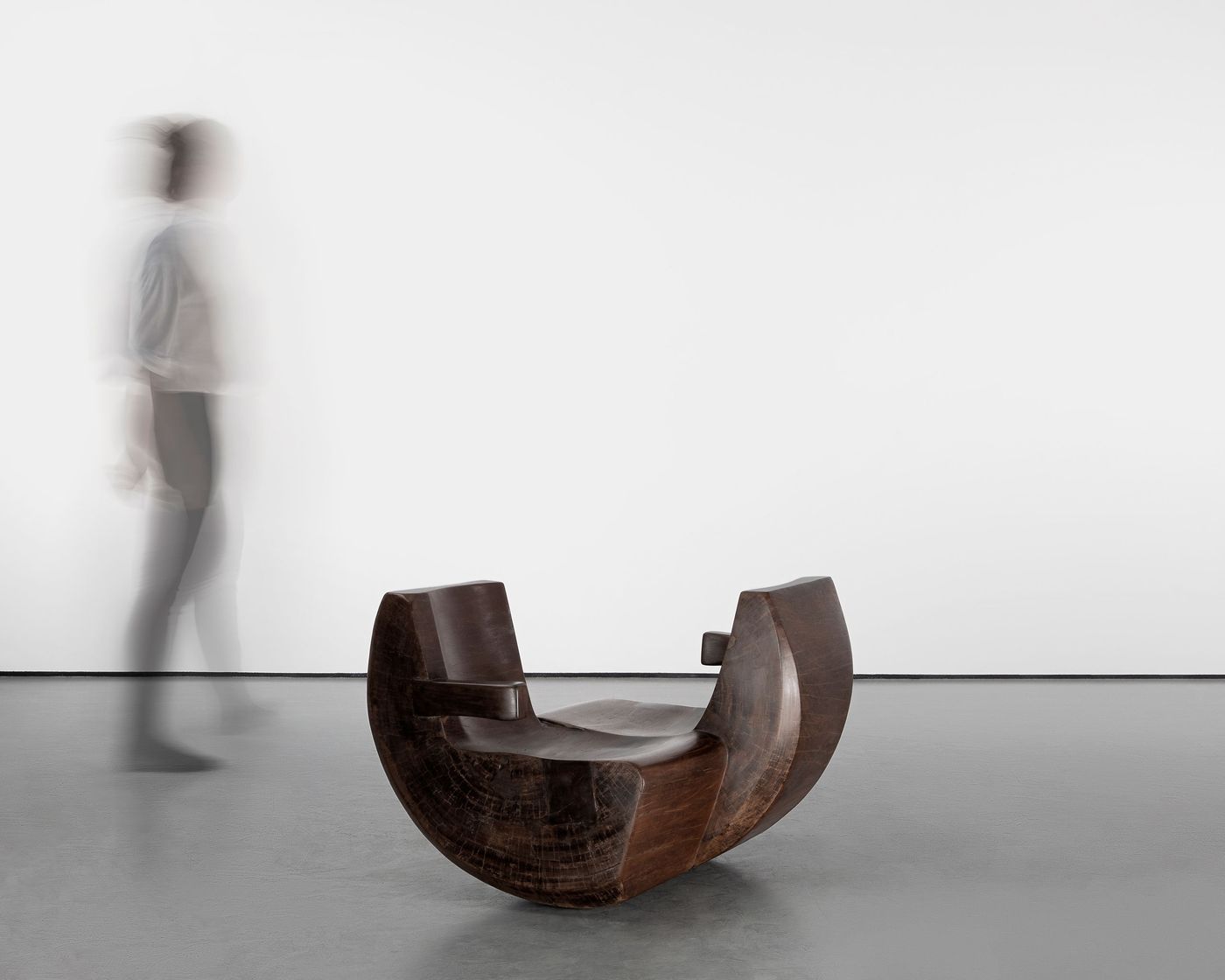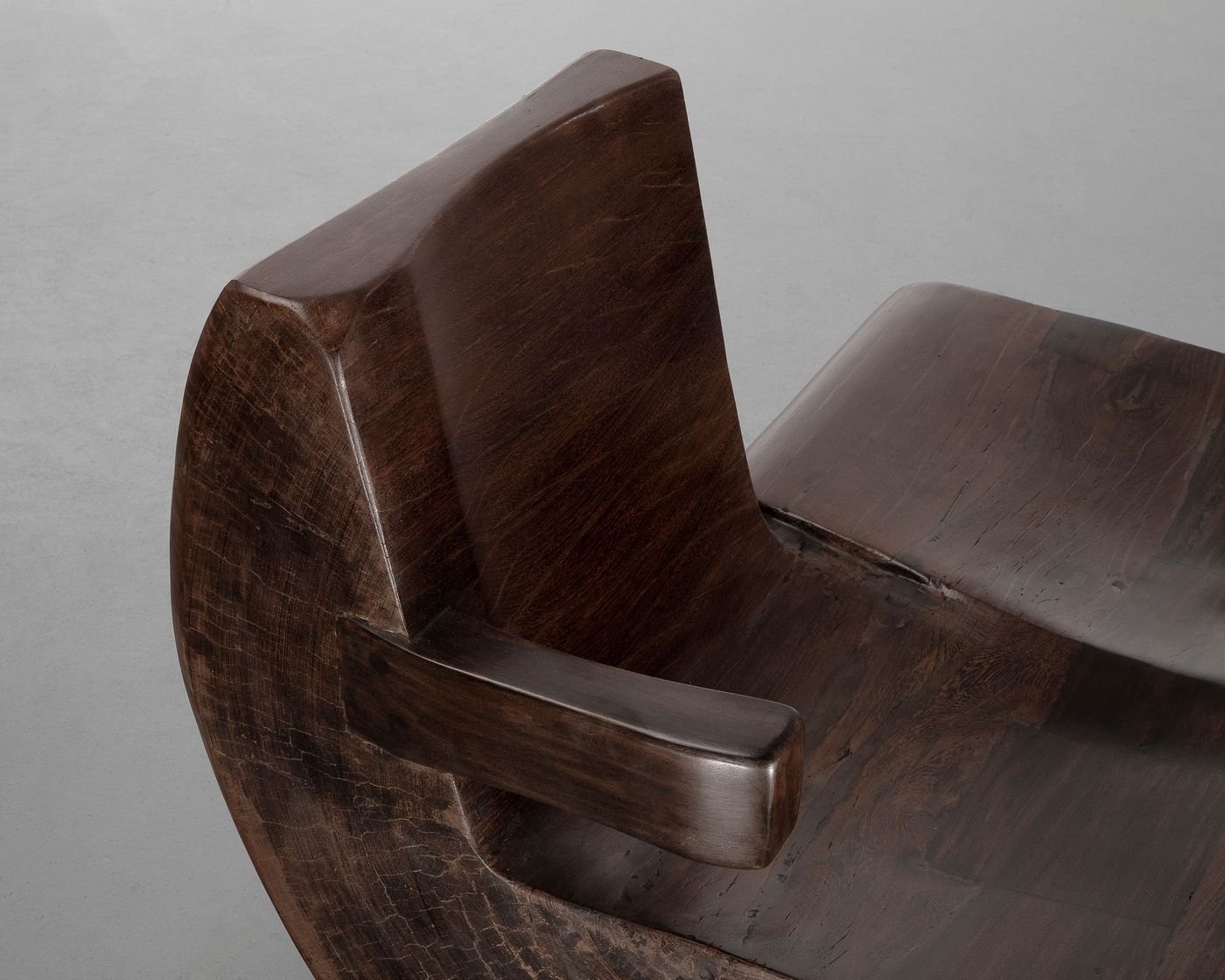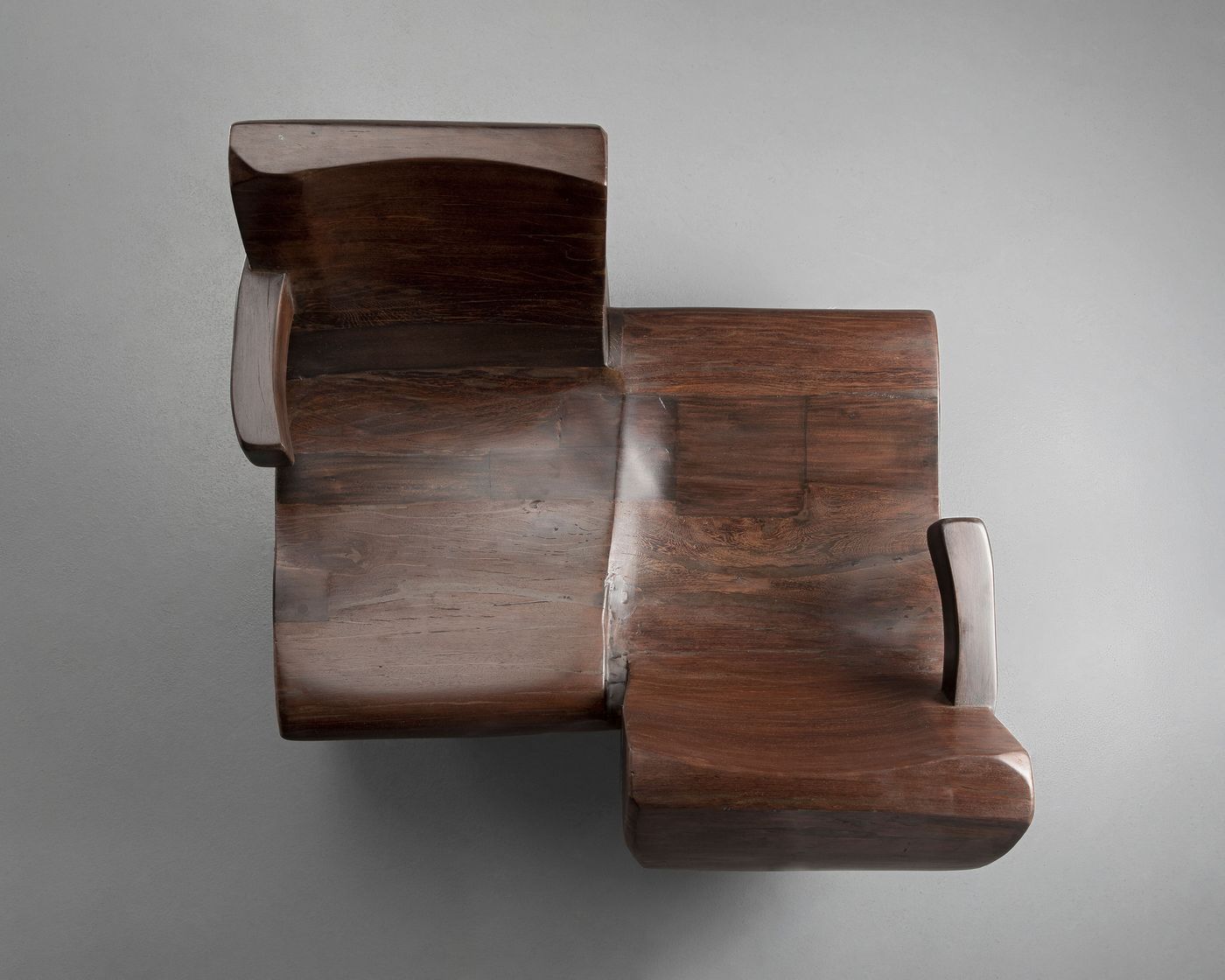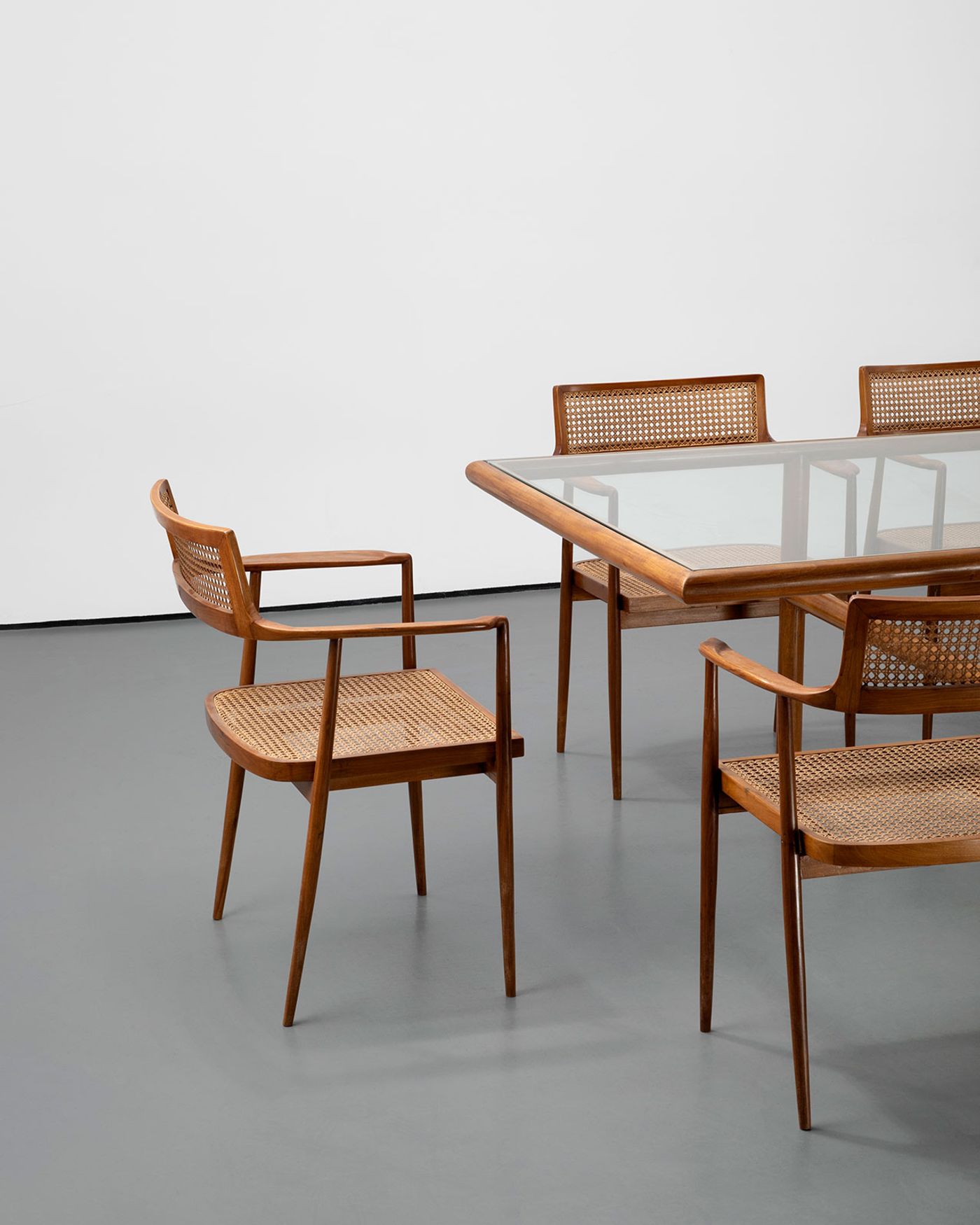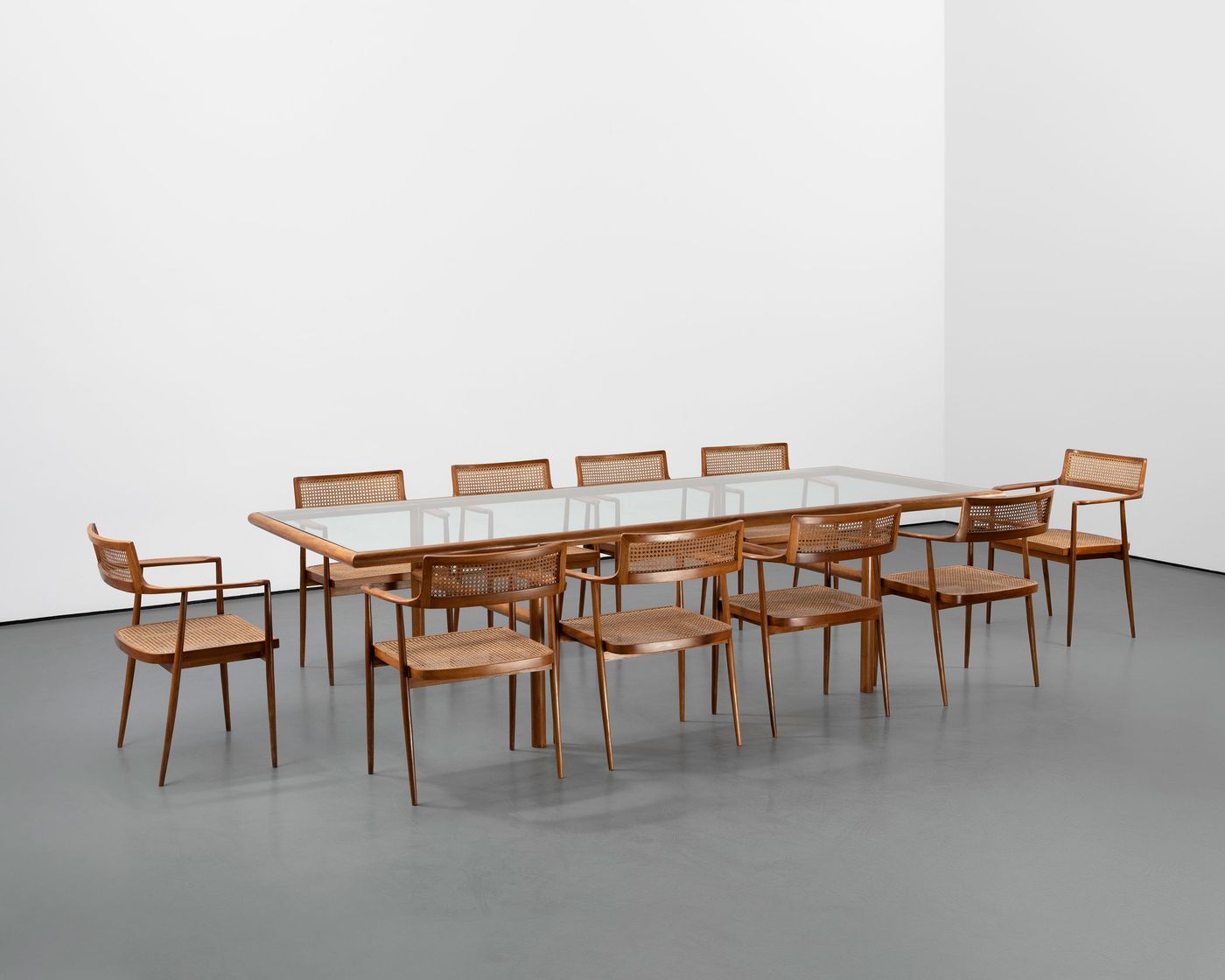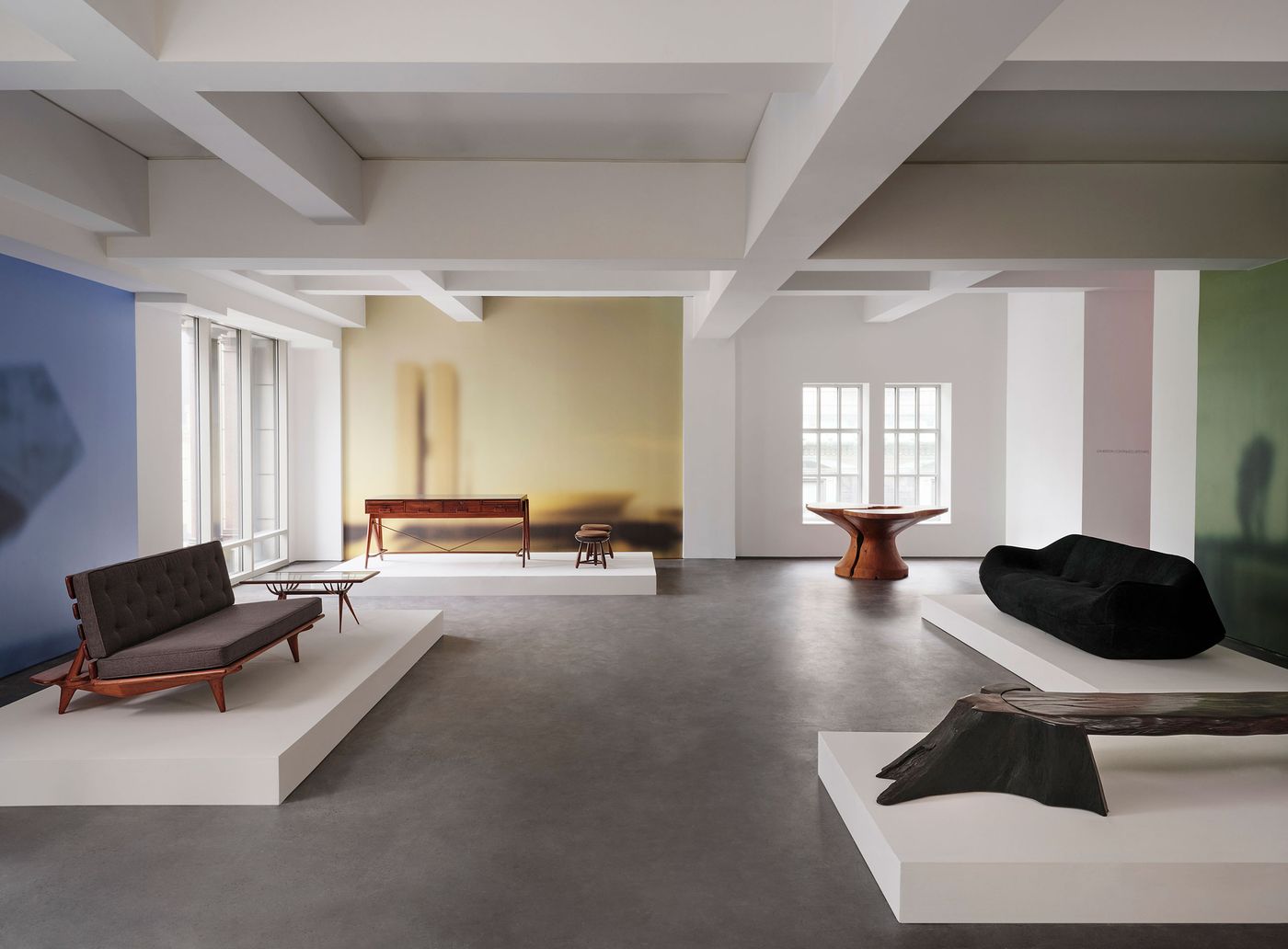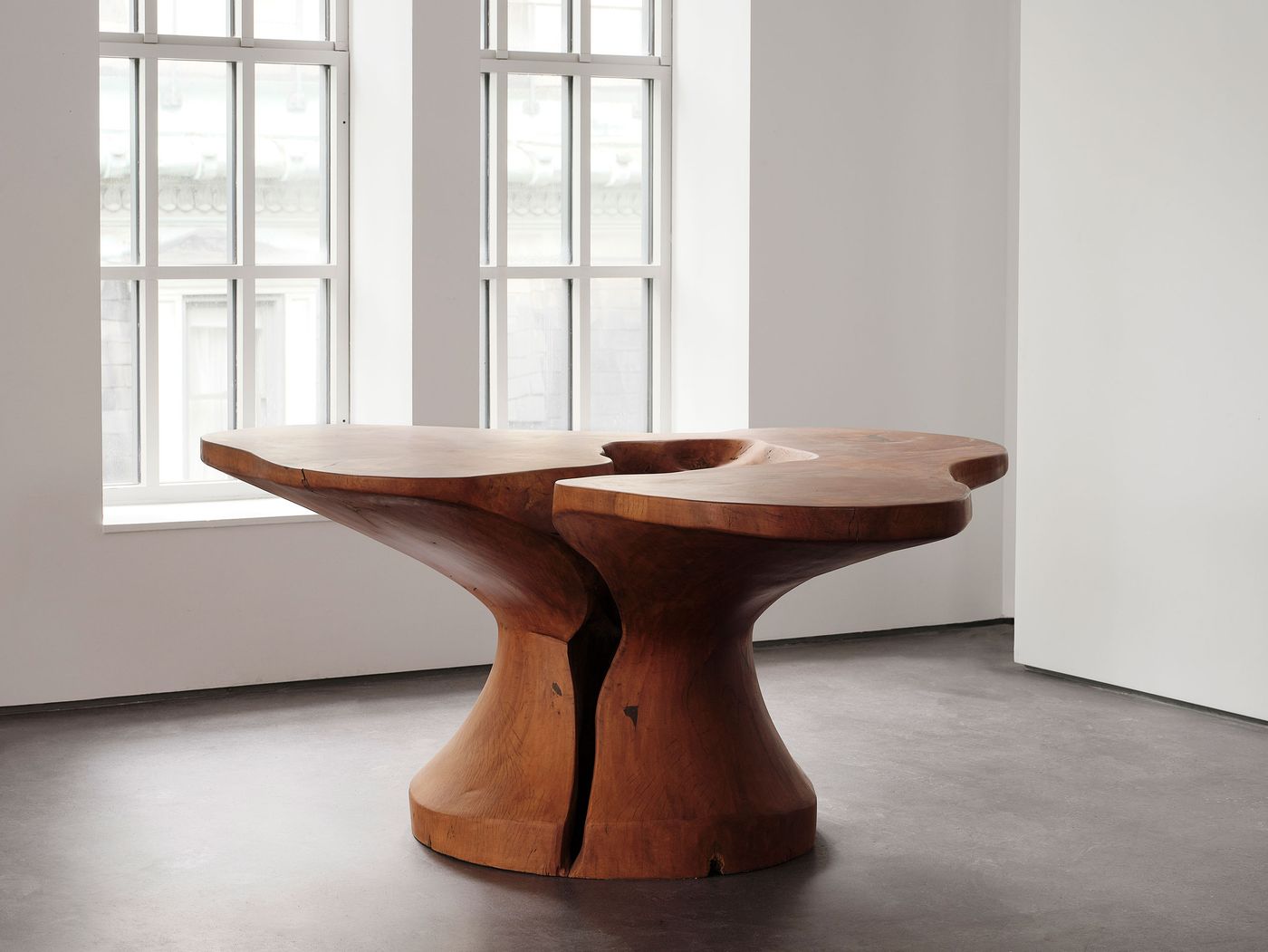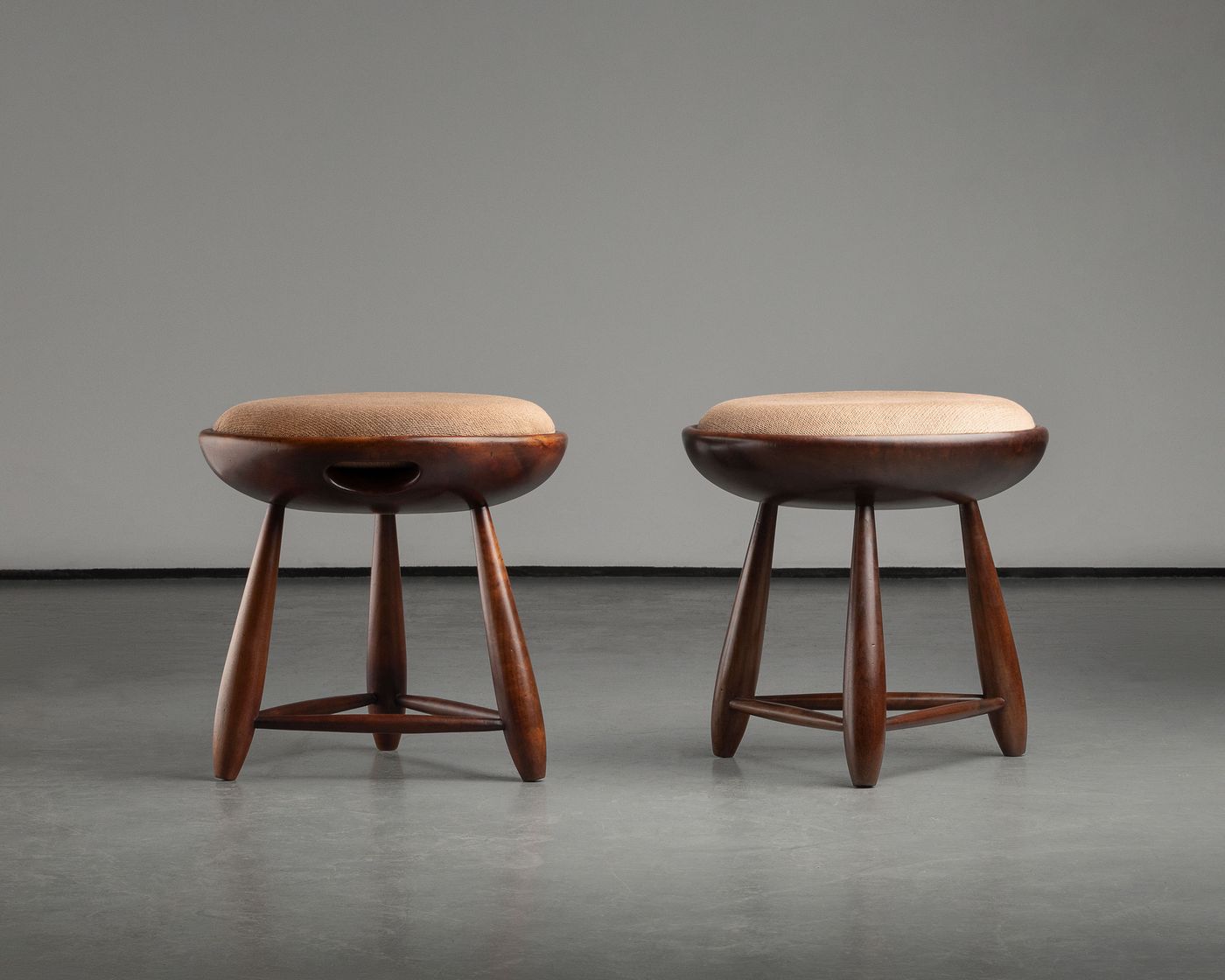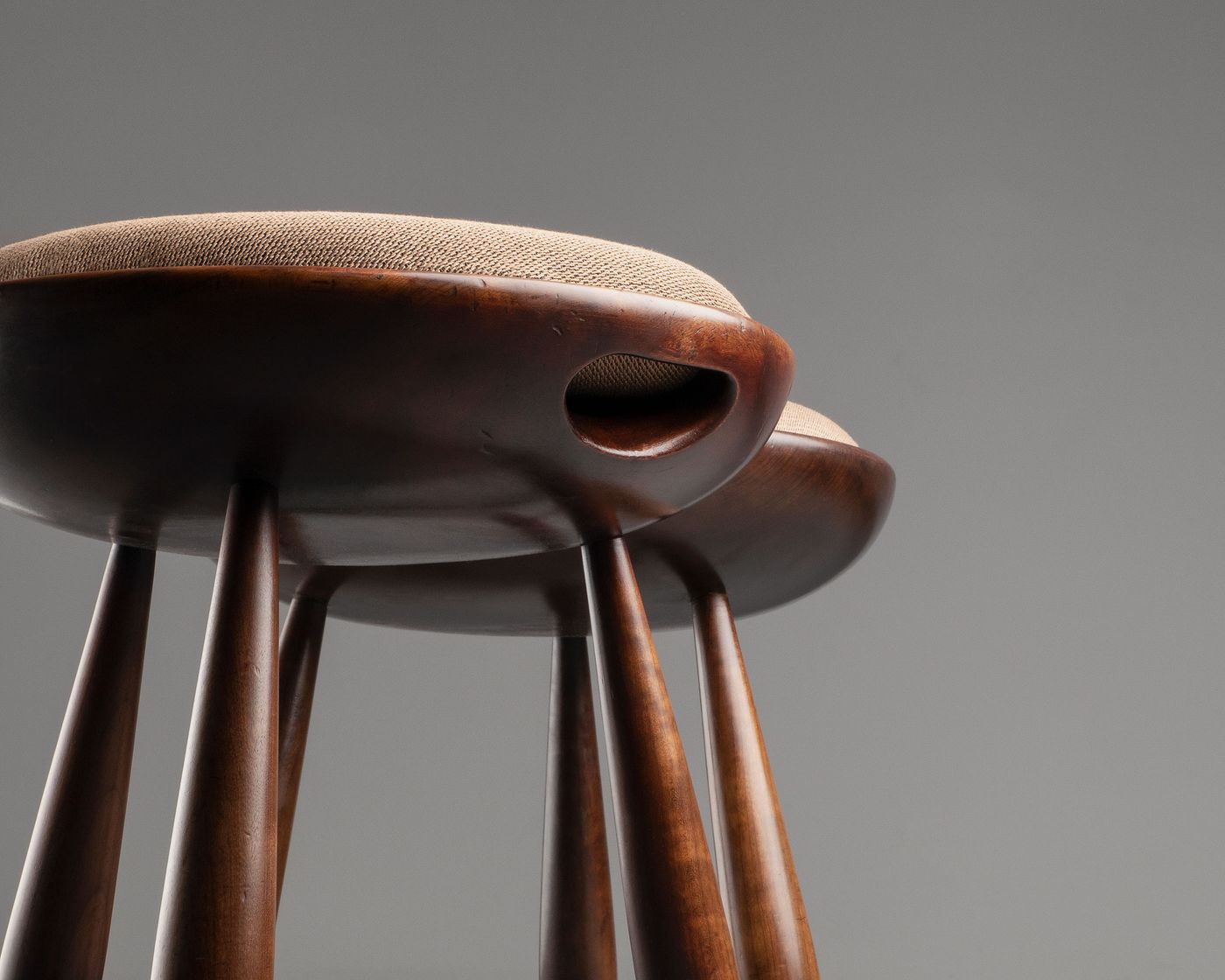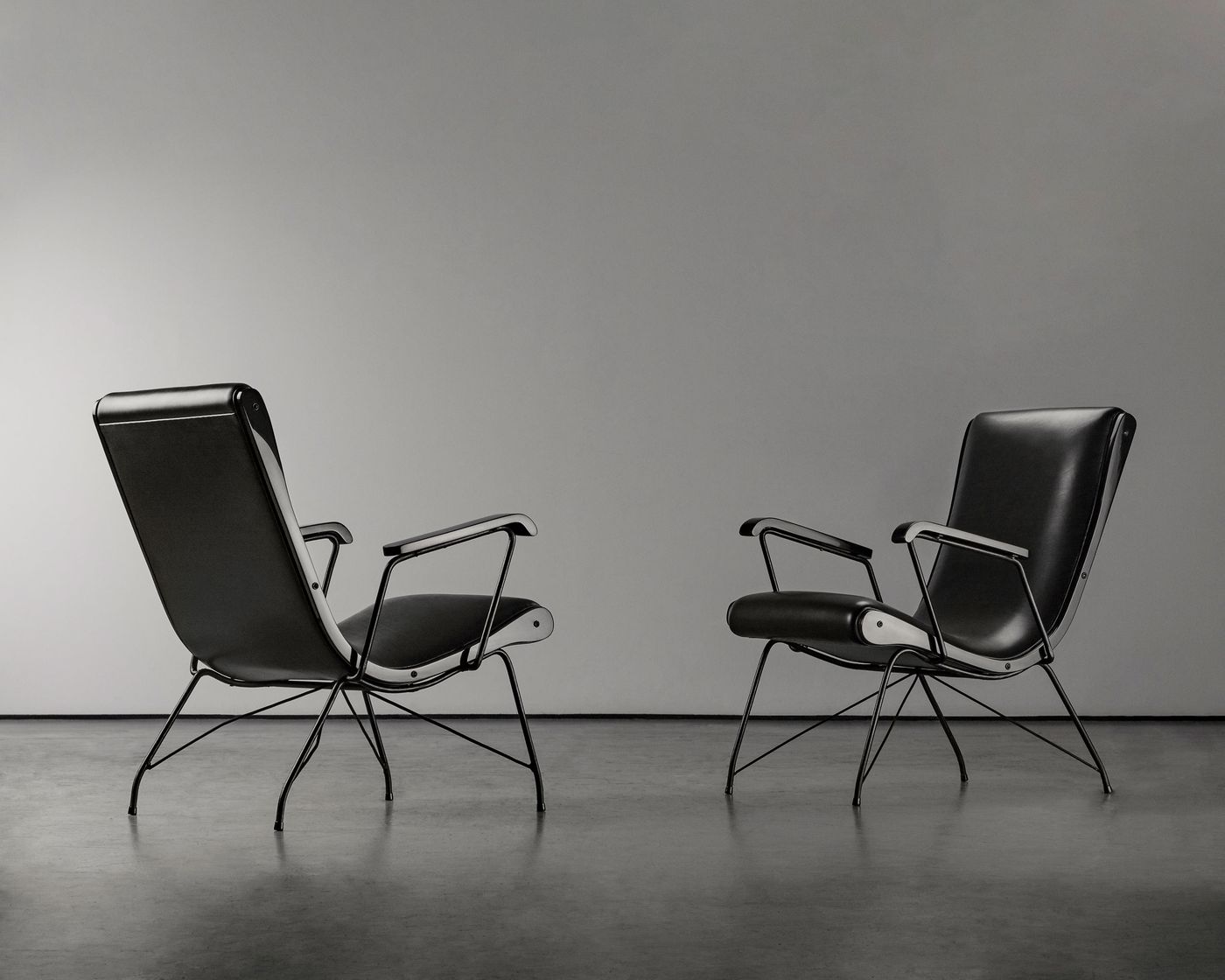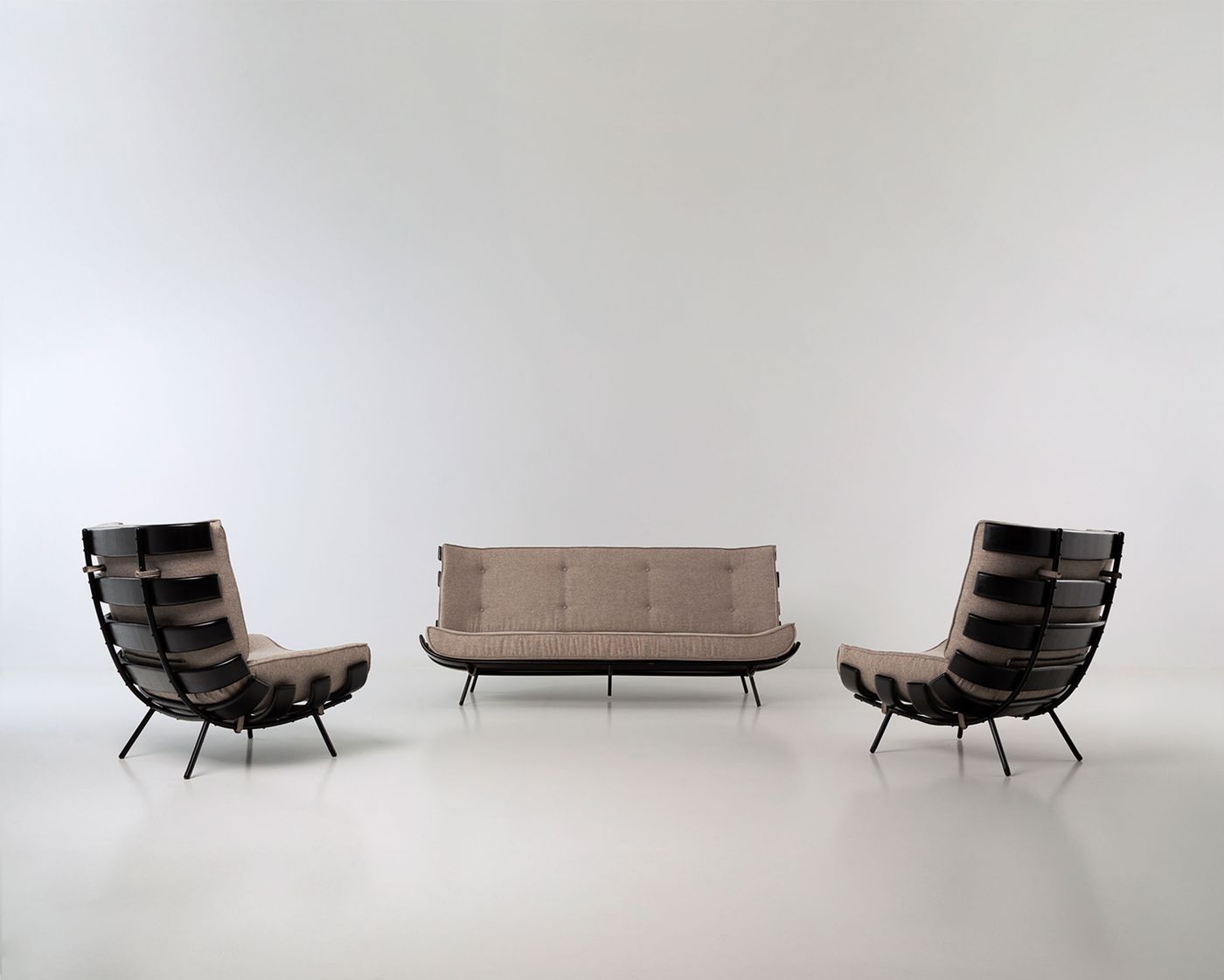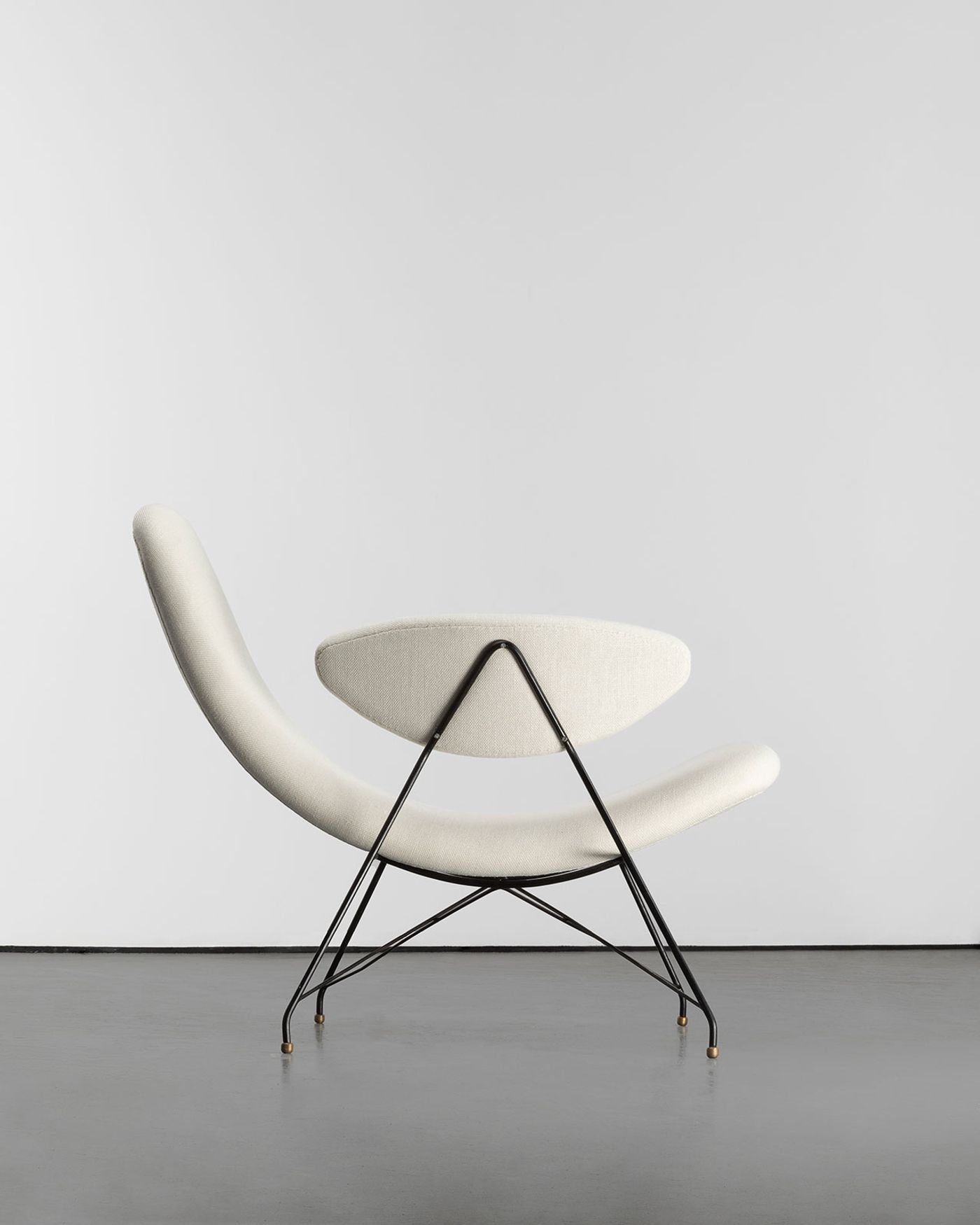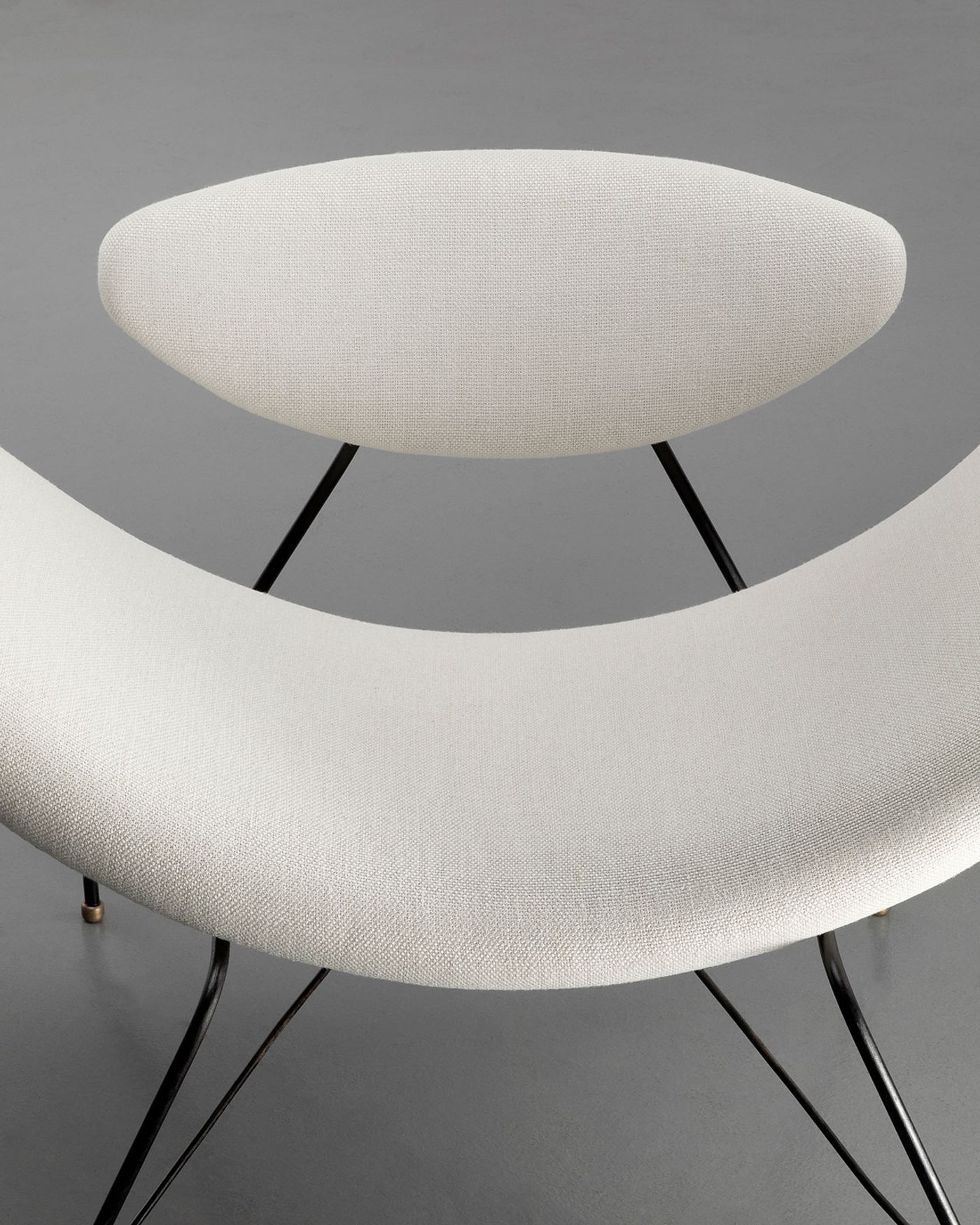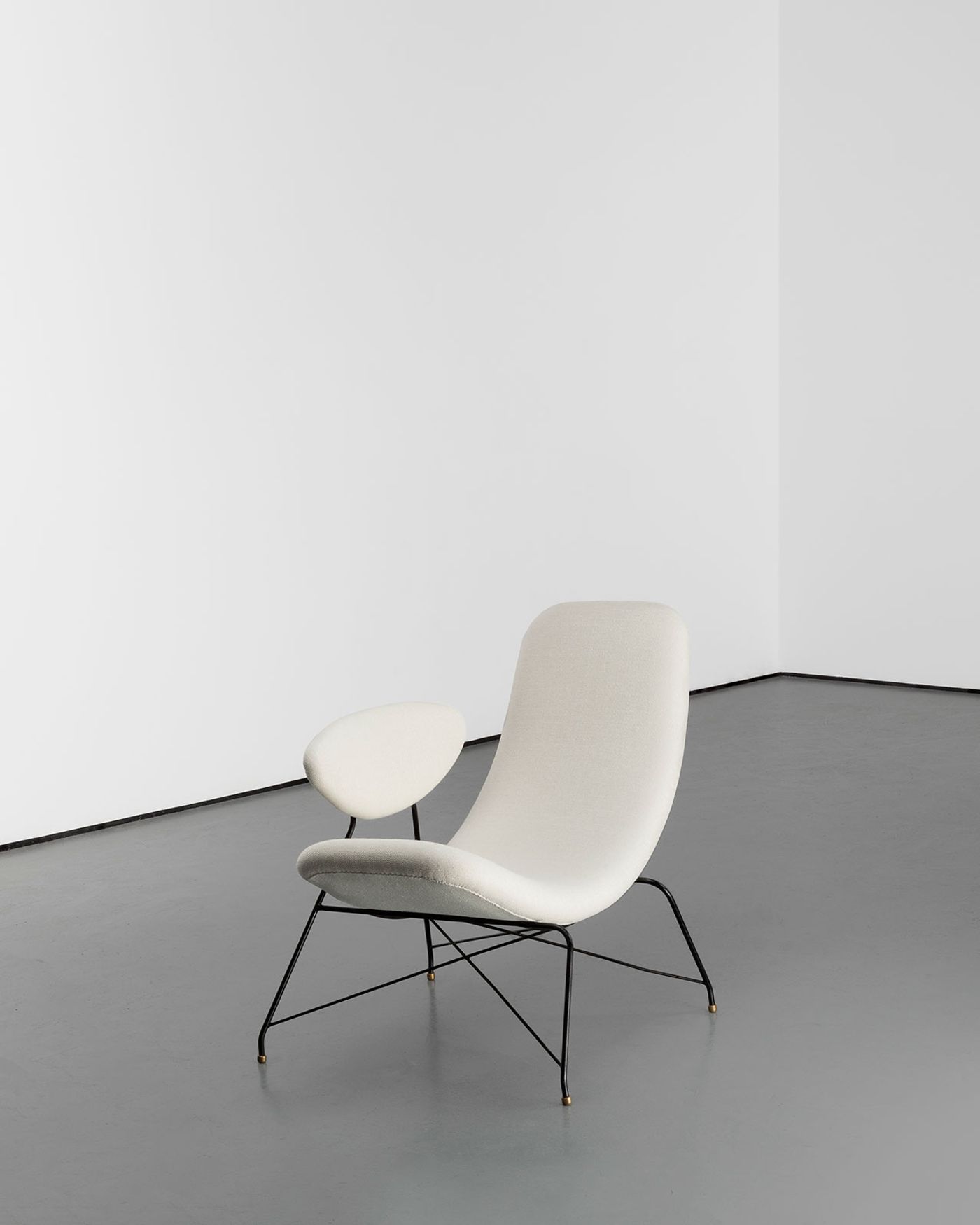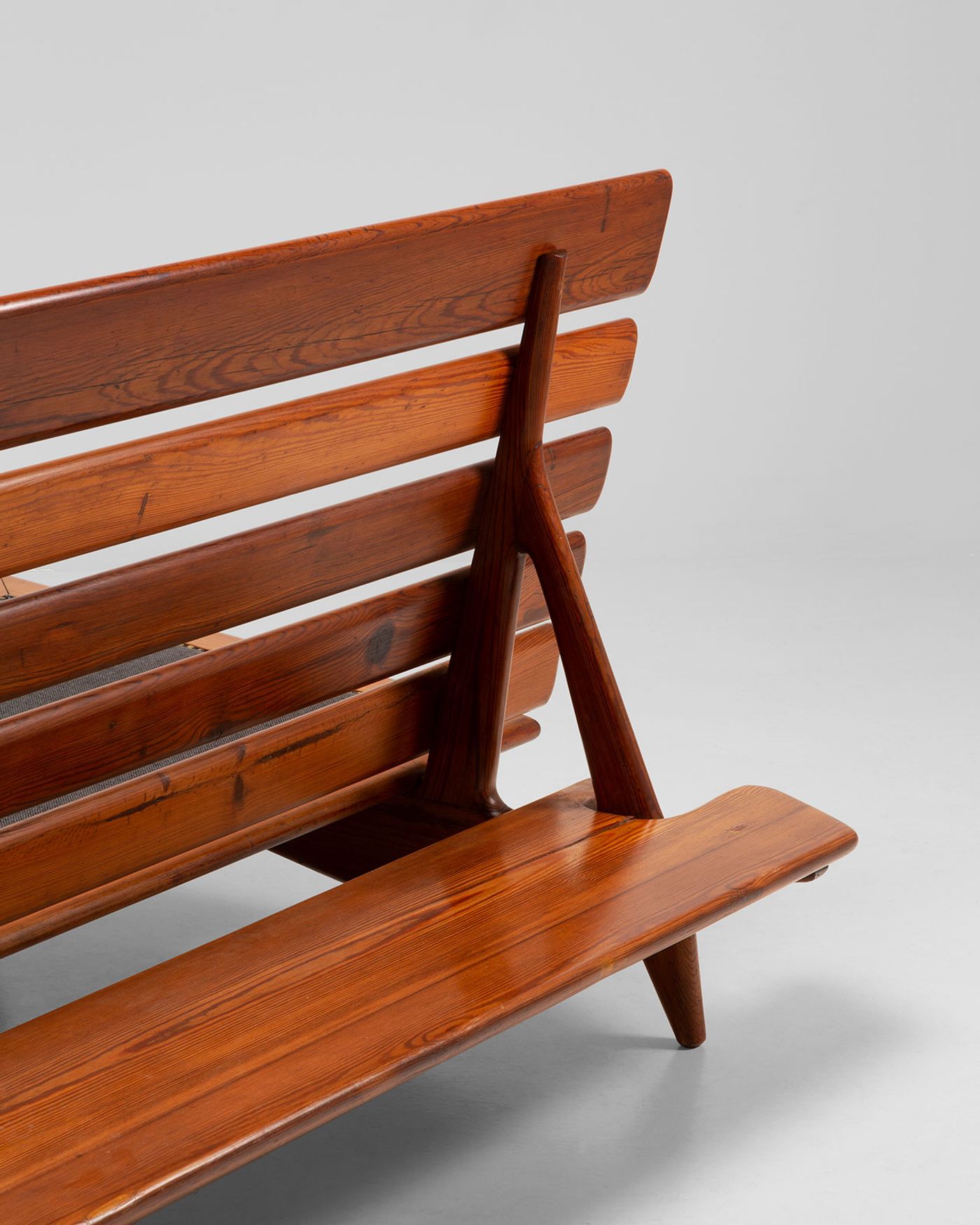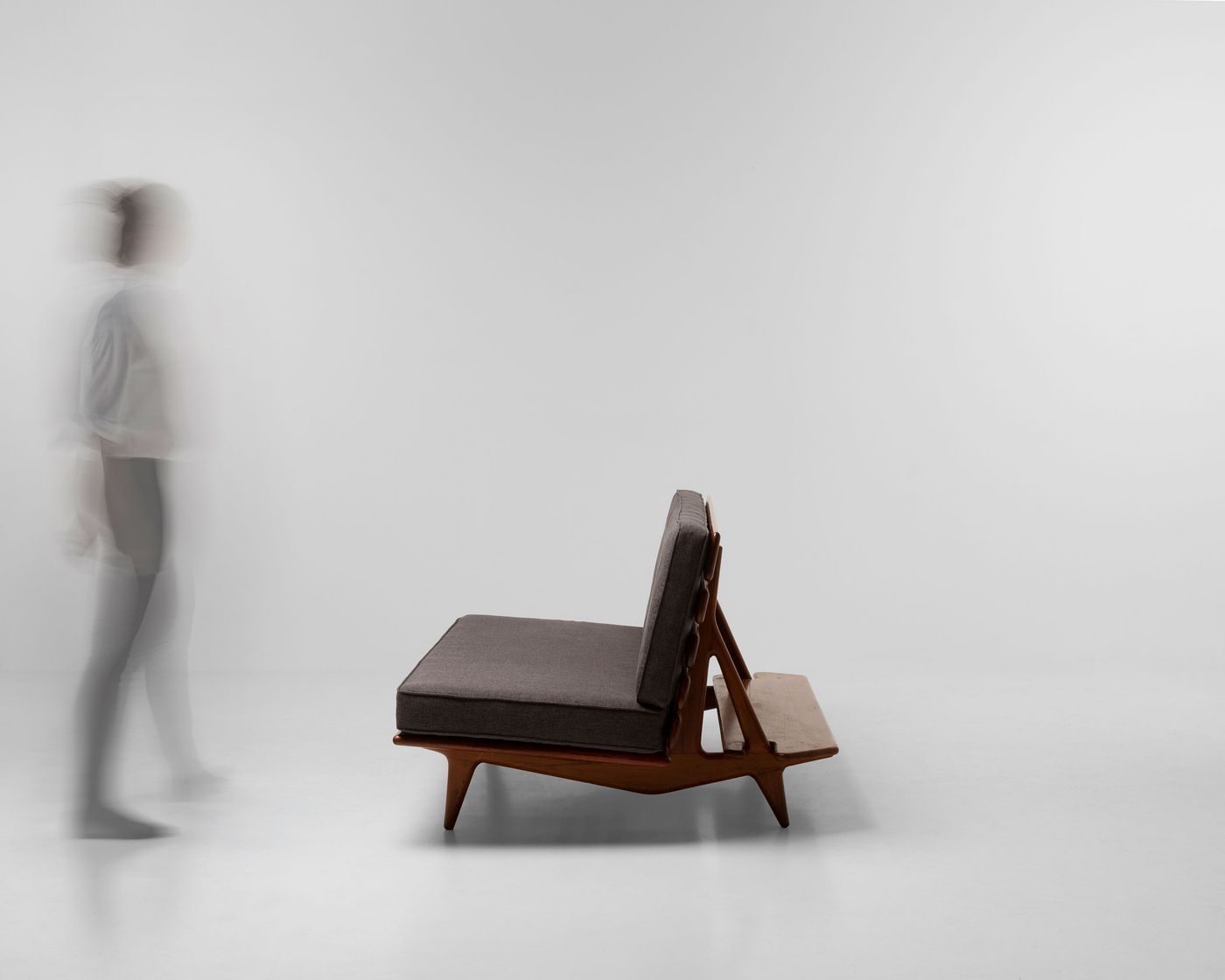
Turning Tides: Designing a Modern Brazil at Carpenters Workshop Gallery
Words by Eric David
Location
New York, United States
Turning Tides: Designing a Modern Brazil at Carpenters Workshop Gallery
Words by Eric David
New York, United States
New York, United States
Location
While Brazilian Modernist furniture may have transpired from the international Modernist movement that emerged in the 20th century, it nevertheless stands out from other mid-century designs in Europe and the United Stated thanks to its unique material choices, cultural integration, organic approach to design, and emphasis on craftsmanship. “Turning Tides: Designing a Modern Brazil”, an exhibition at the Carpenters Workshop Gallery in New York, explores the movement’s unique evolution in the South American nation by bringing together iconic pieces from the 1940s up until the present day. Showcasing work by a diverse cadre of Brazilian artists, from design giants such as Joaquim Tenreiro and Sergio Rodrigues, to contemporary artists whose work was shaped by this critical era, the show “pays tribute to Brazil’s design legacy”, as the gallery’s co-founder Loic Le Gaillard remarks, “highlighting the historical impact of modernism, local craftsmanship, and innovative forms”.

Installation view. Turning Tides, Designing a Modern Brazil, Mar 7 - May 31, 2024. Photography by Matt Harrington. © Carpenters Workshop Gallery.
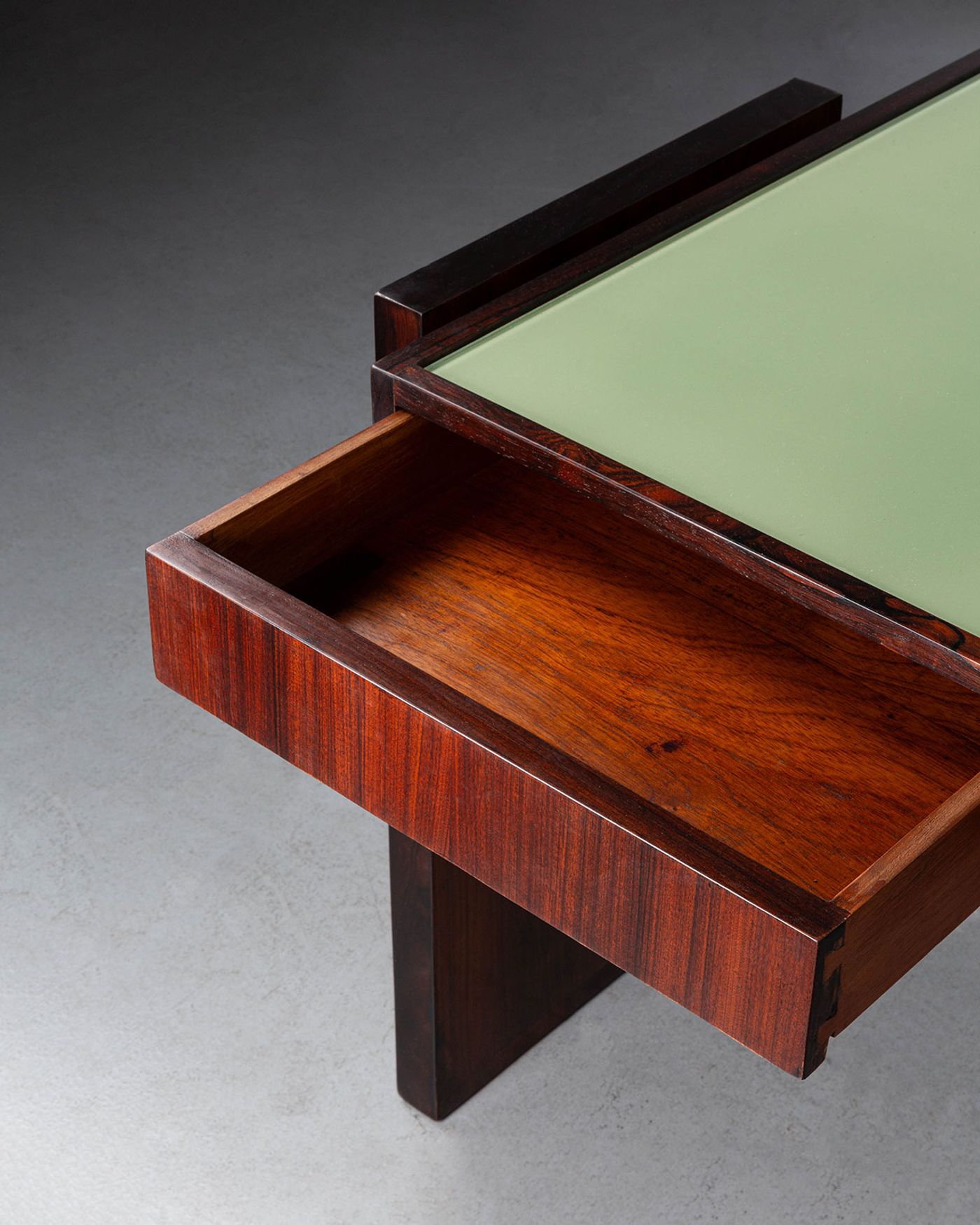
Desk by Joaquim Tenreiro. Photography © Carpenters Workshop Gallery.
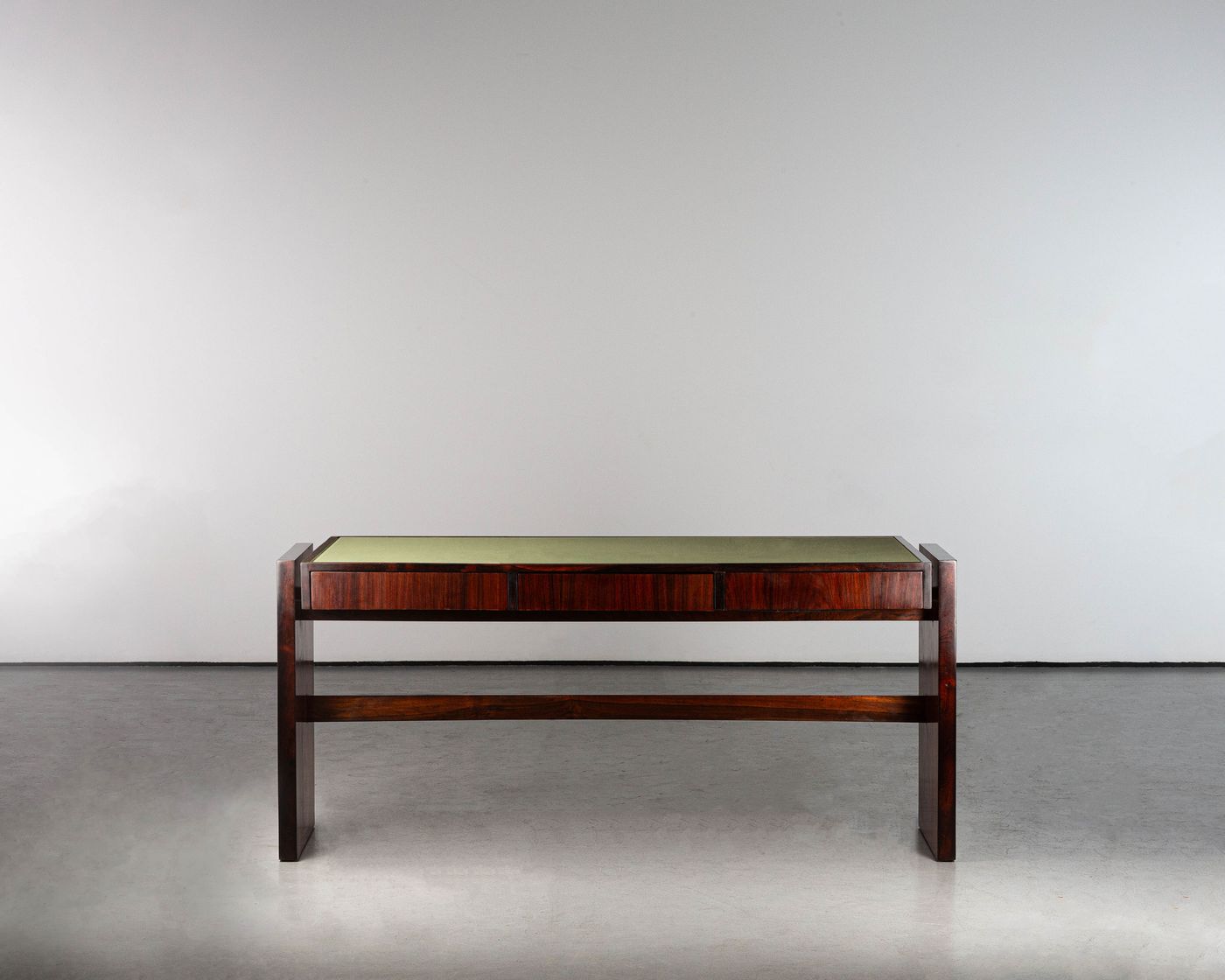
Desk by Joaquim Tenreiro. Photography © Carpenters Workshop Gallery.

Romana Coffee Table by Jorge Zalszupin. Photography © Carpenters Workshop Gallery.

Romana Coffee Table by Jorge Zalszupin. Photography © Carpenters Workshop Gallery.
Following World War II, Brazil underwent a swift economic expansion and industrialization against a backdrop of sweeping political and social changes, fostering an atmosphere of hope and prosperity. The introduction of new materials and technologies brought a wave of modernism to Brazilian design and architecture especially in cities such as Rio de Janeiro and São Paulo, while the transfer of the country’s capital from the former to the newly built city of Brasília, offered yet more opportunities for creativity and innovation.Architects like Oscar Niemeyer – known for his avant-garde designs characterized by sweeping curves, reinforced concrete structures, and natural elements – and designers such as Joaquim Tenreiro, Lina Bo Bardi, Jose Zanine Caldas, Jorge Zalszupin, and Sergio Rodrigues, contributed to the creation of a distinctive Latin American design vocabulary that melded the modernist principles of simplicity and functionality with traditional Brazilian aesthetics.
Unlike the streamlined minimalism prevalent in North American and European designs, Brazilian Modernism embraces a more organic design philosophy, emphasizing harmony with the country's lush natural landscapes by embracing organic forms and local materials, especially woods such as jacaranda, peroba, and freijó whose distinctive textures and warmth served to differentiate Brazilian designs amid the mid-century design landscape. Moreover, the movement highlighted the importance of craftsmanship and artisanal techniques, celebrating the skilled work of local artisans and creating sculptural furniture that focused as much on artistry as it is did on utility.

Installation view. Turning Tides, Designing a Modern Brazil, Mar 7 - May 31, 2024. Photography by Matt Harrington. © Carpenters Workshop Gallery.

Denuncia Dining Bench by Zanine Caldas. Photography © Carpenters Workshop Gallery.
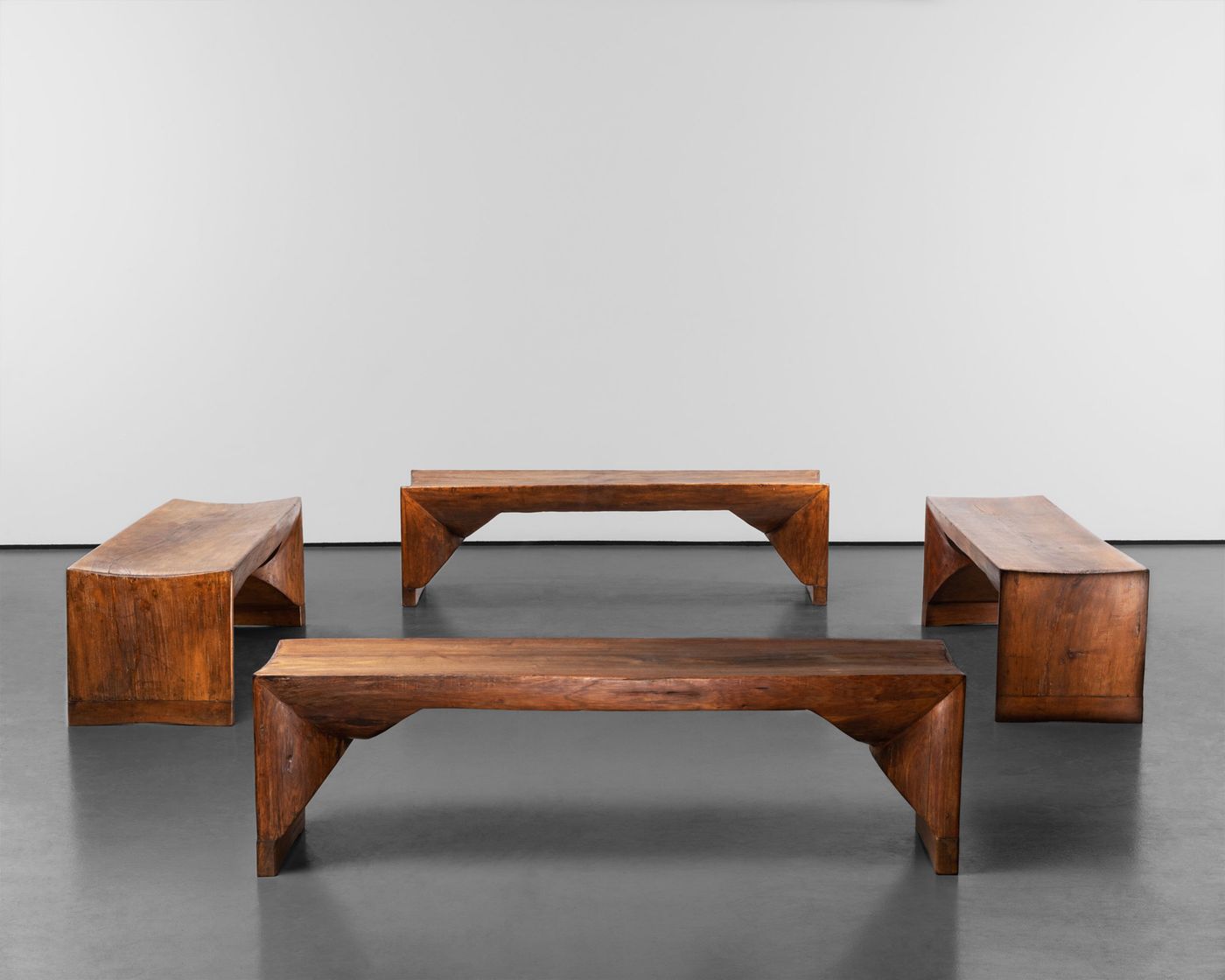
Denuncia Dining Bench by Zanine Caldas. Photography © Carpenters Workshop Gallery.
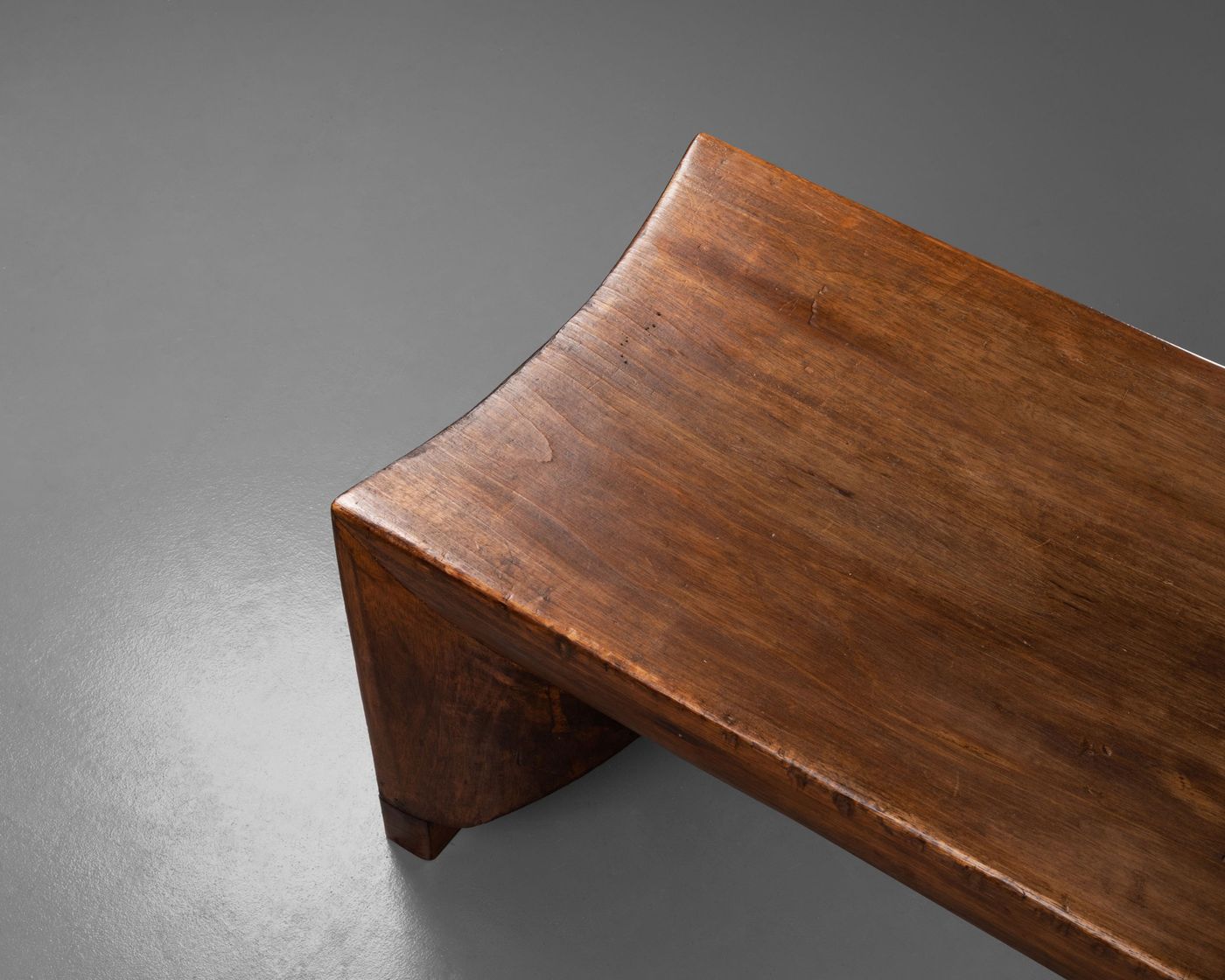
Denuncia Dining Bench by Zanine Caldas. Photography © Carpenters Workshop Gallery.
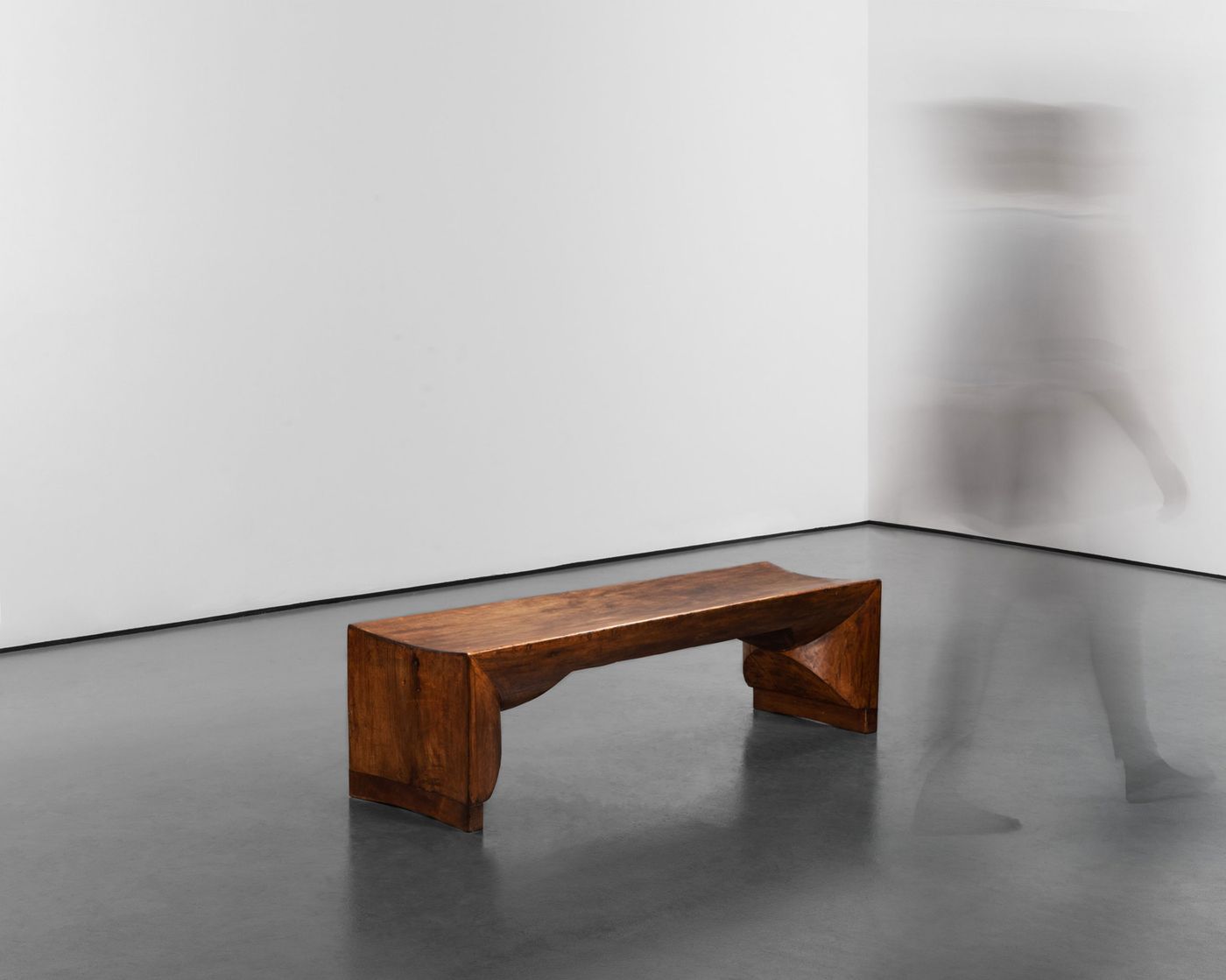
Denuncia Dining Bench by Zanine Caldas. Photography © Carpenters Workshop Gallery.
Exhibition highlights include several pieces by Zanine Caldas such as the iconic tête-à-tête rocker Namoradeira (Portuguese for sweethearts), a unique rendition of the French conversation chair popularized in the 1800s. Probably more than any other piece showcased in the exhibition, this piece underscores the influence that indigenous craftsmanship has had on modern Brazilian design. Blurring the lines between furniture and sculpture, the chair is carved from a single piece of rainforest hardwood inspired by traditional canoe building techniques. Made in the early 1970s, when Caldas first started to experiment with the Namoradeira design, the piece celebrates the raw beauty of wood as well as Brazil’s precious natural resources. Made from trees that had already been felled, the Namoradeira series makes up part of the Móveis Denúncia, or "protest furniture," just like the Denúncia Dining Chairs, also on display, which Caldas created in response to the destruction of Brazil’s forests.
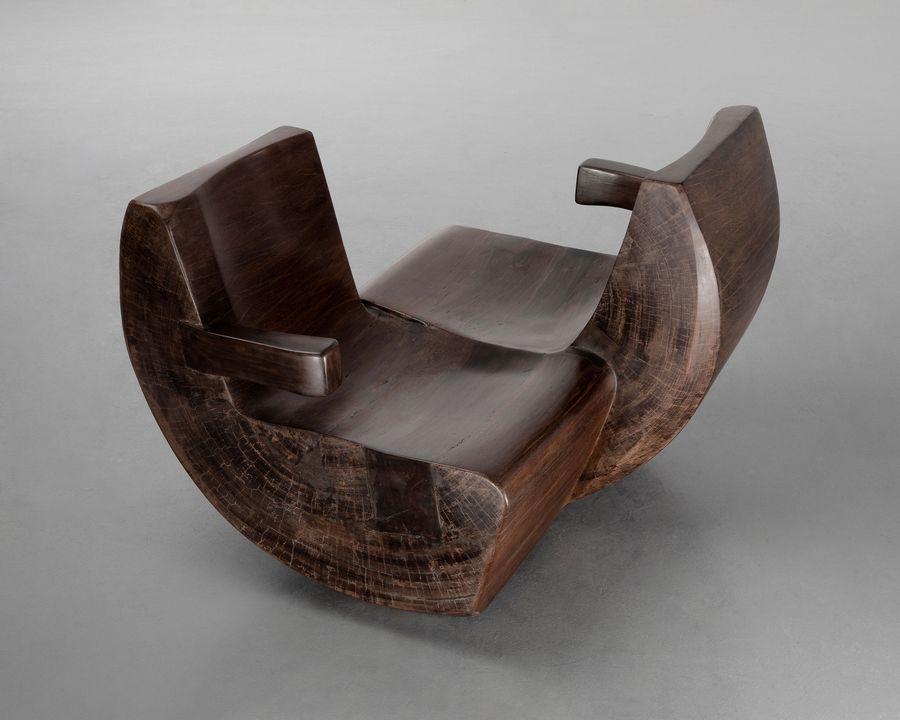
Namoradeira Tête-à-Tête Rocker by Zanine Caldas. Photography © Carpenters Workshop Gallery.
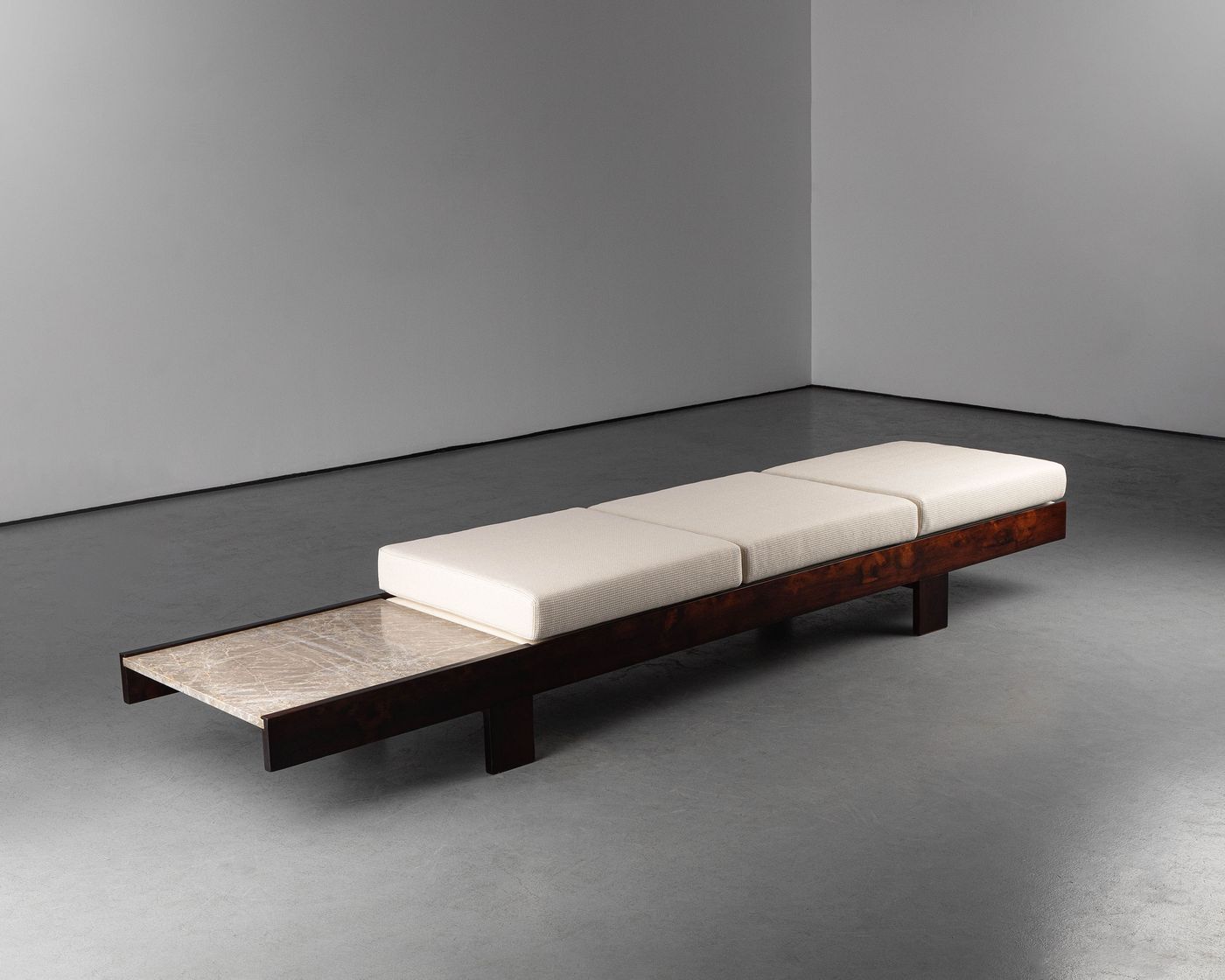
Bench by Joaquim Tenreiro. Photography © Carpenters Workshop Gallery.
Another designer that left an indelible mark on Brazilian design is Joaquim Tenreiro. Often referred to as the father of Brazilian modernism, the designer is known for his passion for visual lightness, sense of craftsmanship, and material purity in his work. Take for example a one-of-a-kind bench on display; made from imbuia wood and marble, the minimalist design exemplifies the interior design projects that the designer oversaw, in which large spaces were complemented with low, horizontal furniture, to create a modern and spacious atmosphere.

Coffee Table by Giuseppe Scapinelli. Photography by Matt Harrington. © Carpenters Workshop Gallery.

Coffee Table by Giuseppe Scapinelli. Photography by Matt Harrington. © Carpenters Workshop Gallery.

Coffee Table by Giuseppe Scapinelli. Photography by Matt Harrington. © Carpenters Workshop Gallery.
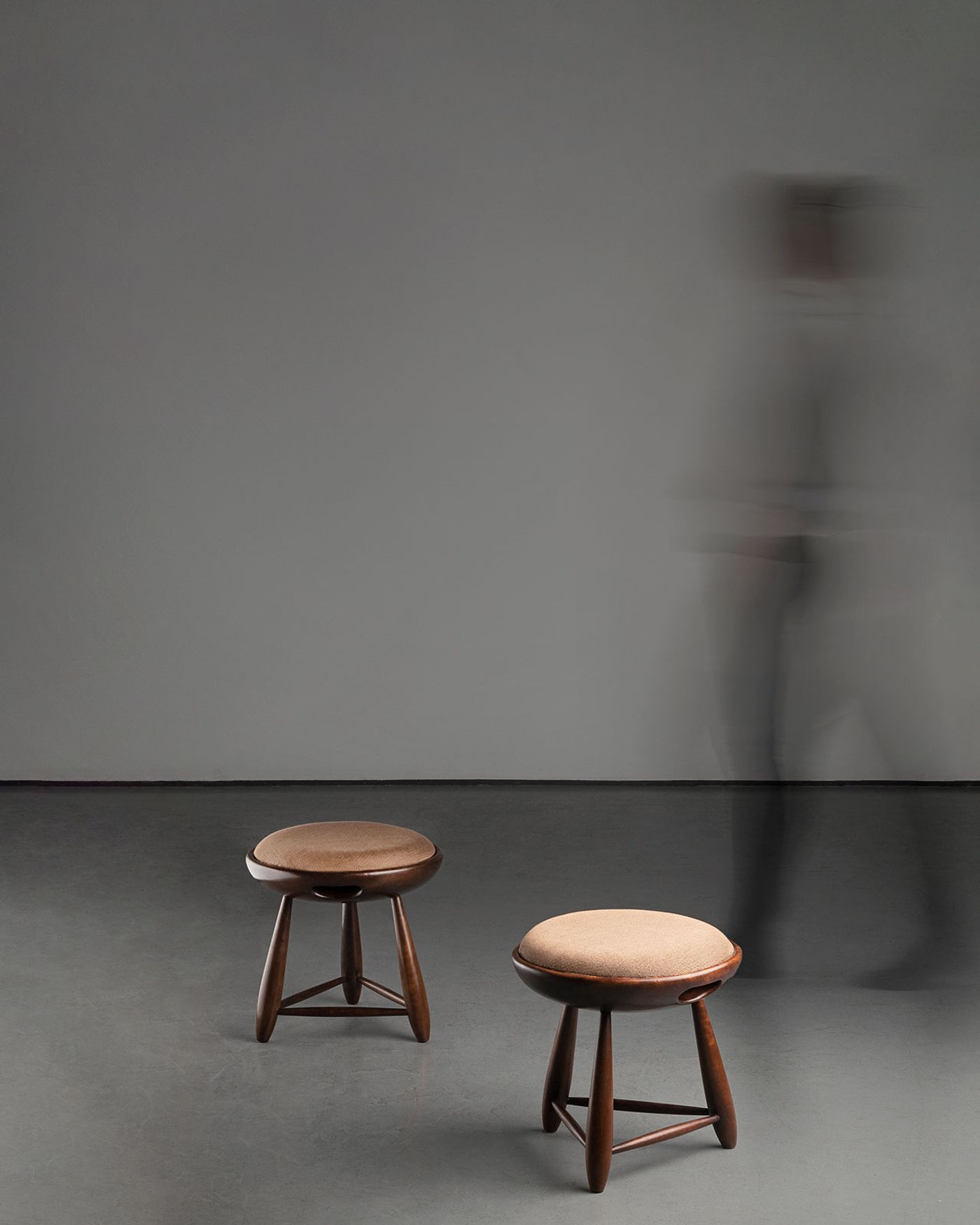
Stools by Sergio Rodrigues. Photography © Carpenters Workshop Gallery.
Lina Bo Bardi’s Writing Desk (1950) encapsulates the Italian-born Brazilian architect’s unique artistic approach to furniture design. Crafted from caviuna, a type of Brazilian rosewood, and featuring a playful silhouette reminiscent of Italian modernism, the piece is a soulful blend of Italian and Brazilian modes and a reminder of Bo Bardi’s contribution towards breaking gender barriers for women in a time and field mostly reserved for men.
Another designer on display who fuses European influences with local Brazilian aesthetics is Jorge Zalszupin, an architect and designer born and raised in Poland before immigrating to Brazil in 1946. Seldomly displayed in public, Zalszupin’s Manhattan Lounge Set (1960) attests to his unique modernist vocabulary, which celebrated geometry, organic shapes, and fine leathers. Upholstered in a luxurious dark suede, the highly sculptural pieces seem to float above the ground due to their faceted design and purposefully small base.
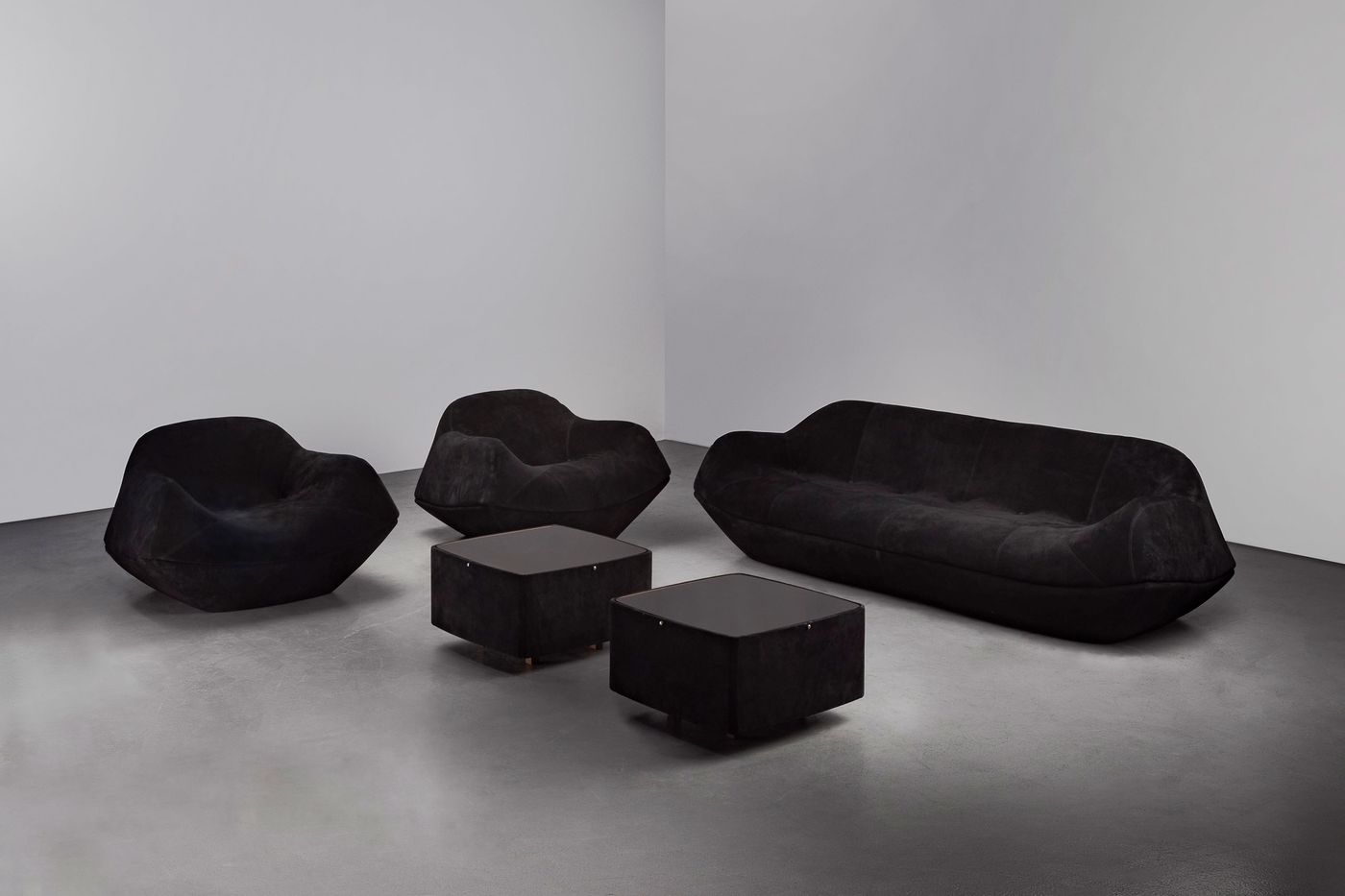
Manhattan Lounge Set by Jorge Zalszupin. Photography © Carpenters Workshop Gallery.

Installation view. Turning Tides, Designing a Modern Brazil, Mar 7 - May 31, 2024. Photography by Matt Harrington. © Carpenters Workshop Gallery.

Installation view. Turning Tides, Designing a Modern Brazil, Mar 7 - May 31, 2024. Photography by Matt Harrington. © Carpenters Workshop Gallery.
Unlike other designers working in mid-century Brazil, Carlo Hauner didn’t use wood purely for its aesthetic or symbolic value, preferring it instead for its ability to be shaped and crafted as attested by a pair of his Prototype Armchairs from the 1950s. Combining black lacquered wood with leather upholstery, the chair’s wide, curved backrest and gently rising seat provide cocoon-like comfort despite its sleek, modern design.An exhibition about Brazilian Modernism would of course not be complete without Oscar Niemeyer. On display, a pair of side tables from 1960 encapsulate Niemeyer’s artistic vocabulary with their curved and sinuous forms. Small in scale, they nevertheless feel monumental, as does the exhibition’s pared down scenography which gives each piece enough breathing space to tell its own story of “resilience, ingenuity, and the unwavering pursuit of beauty” in Le Gaillard’s words.
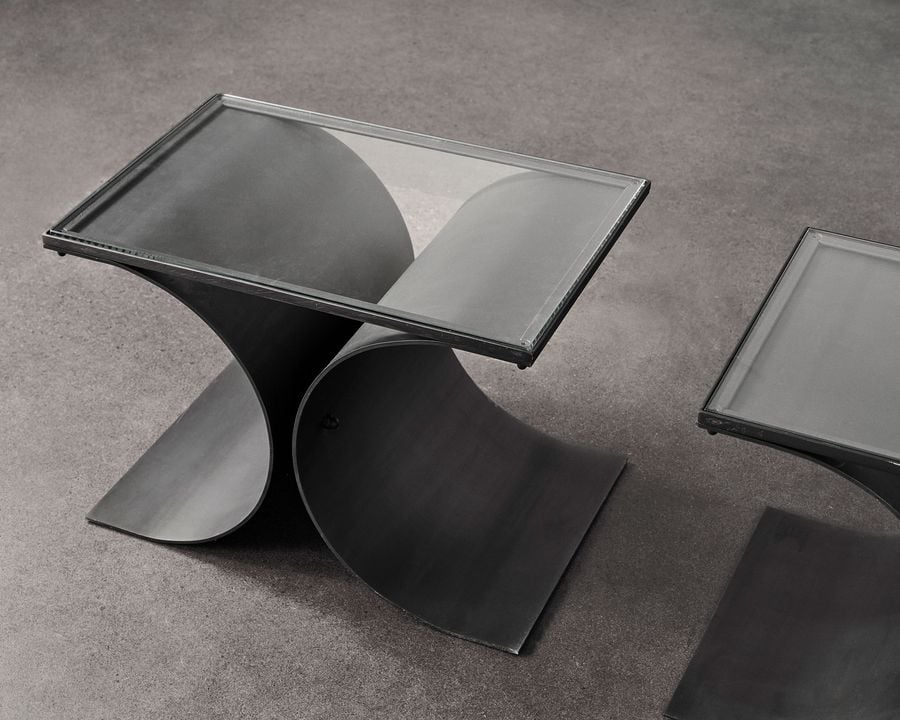
Side Tables by Oscar Niemeyer. Photography © Carpenters Workshop Gallery.
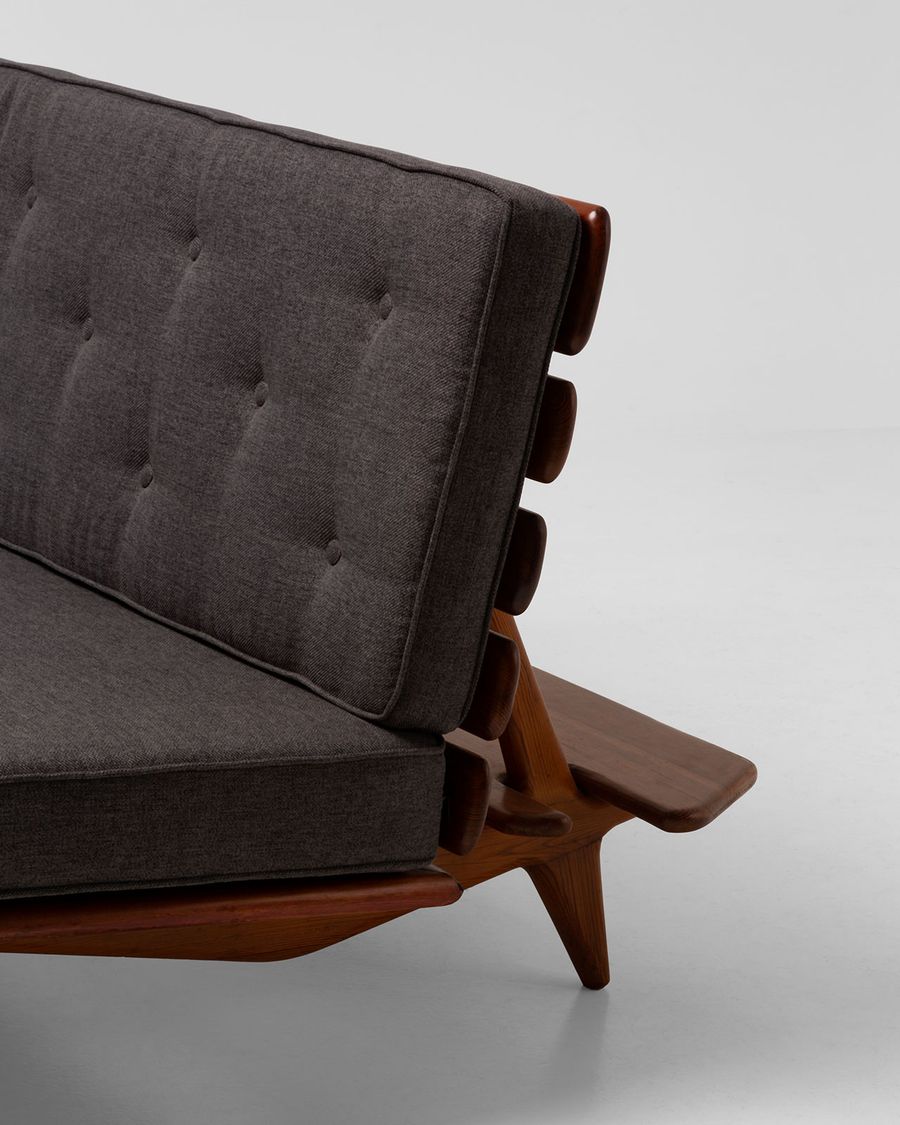
Hauner Sofa by Sergio Rodrigues. Photography © Carpenters Workshop Gallery.
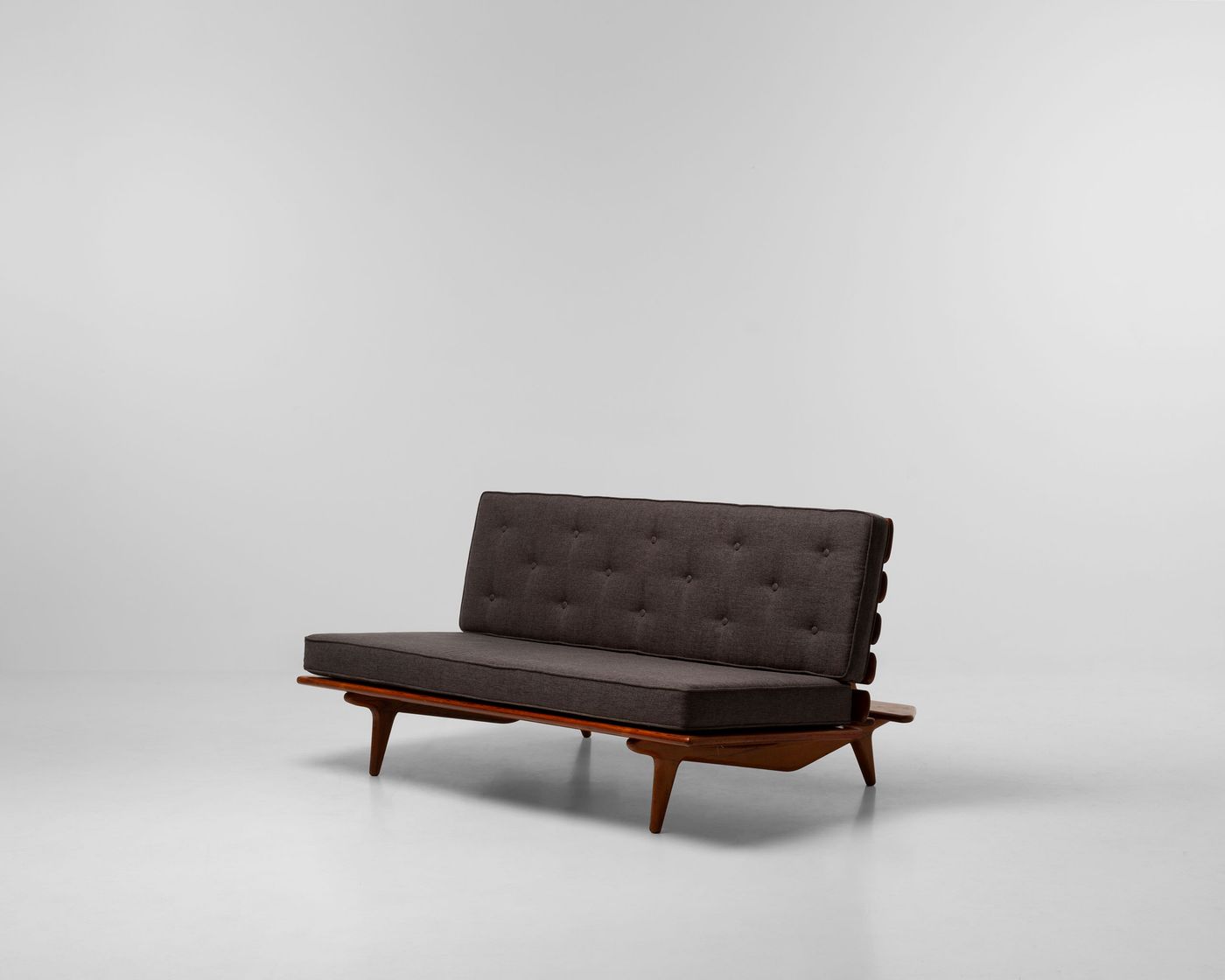
Hauner Sofa by Sergio Rodrigues. Photography © Carpenters Workshop Gallery.

Coffee Table by Giuseppe Scapinelli. Photography by Matt Harrington. © Carpenters Workshop Gallery.

Installation view. Turning Tides, Designing a Modern Brazil, Mar 7 - May 31, 2024. Photography by Matt Harrington. © Carpenters Workshop Gallery.

Installation view. Turning Tides, Designing a Modern Brazil, Mar 7 - May 31, 2024. Photography by Matt Harrington. © Carpenters Workshop Gallery.
